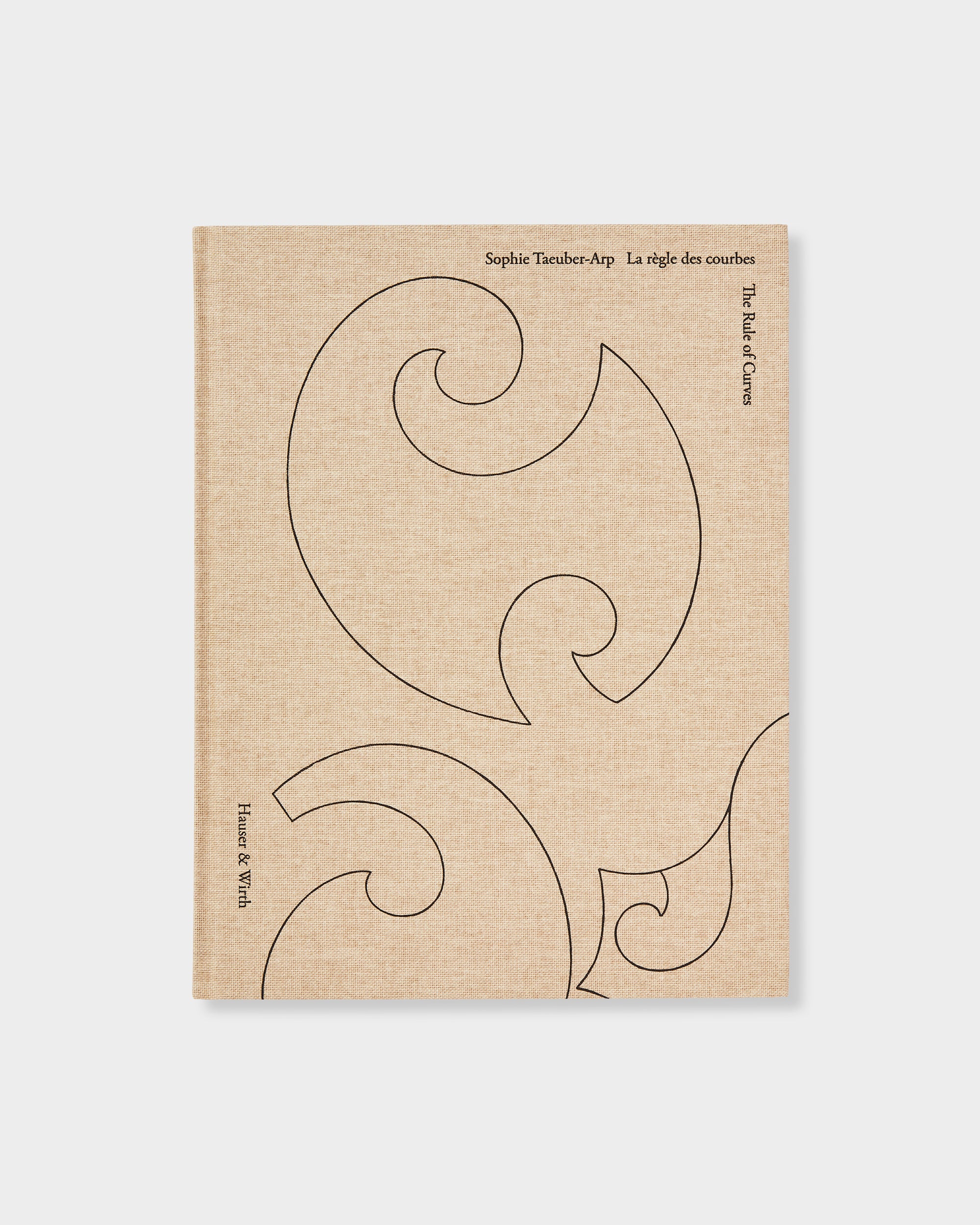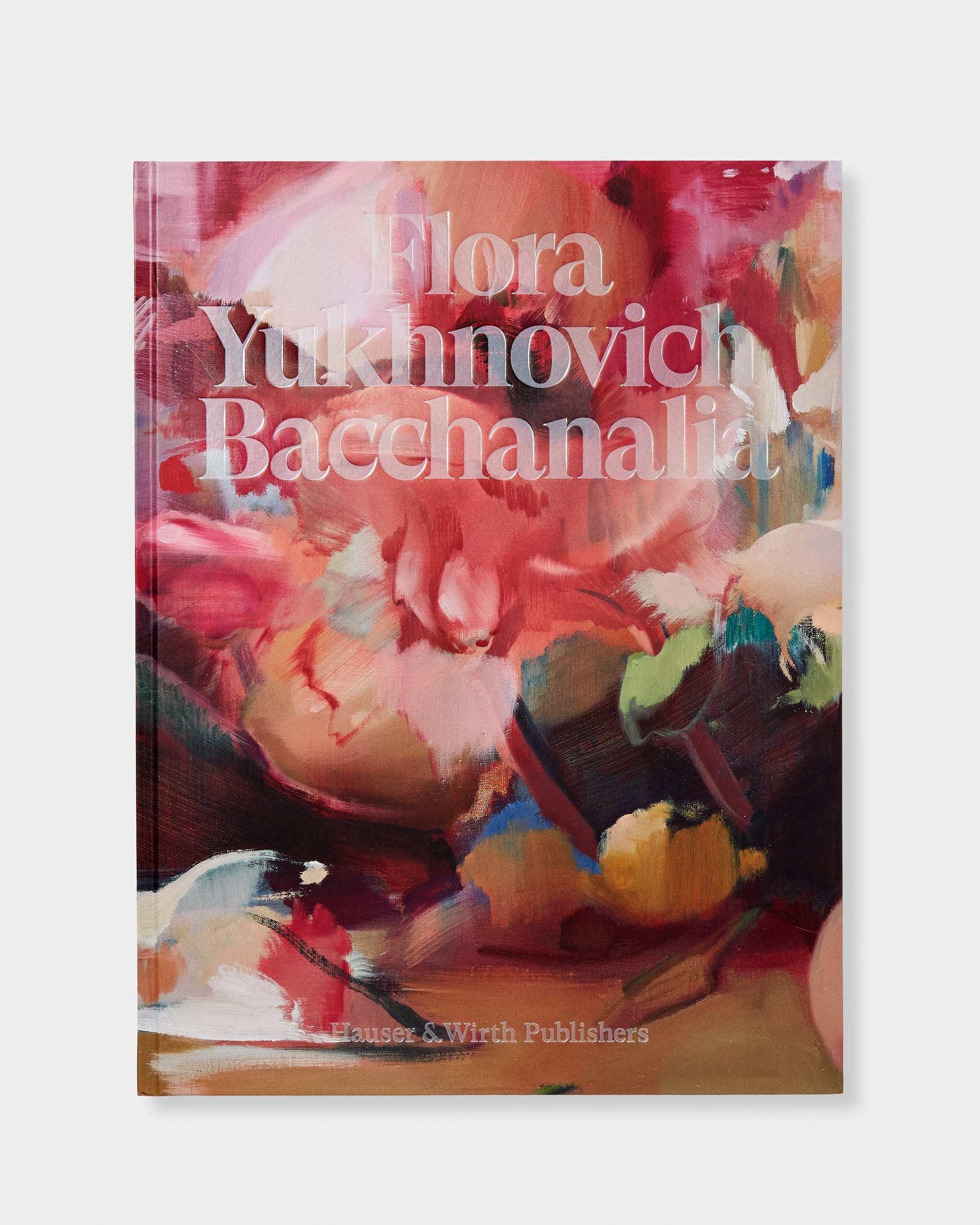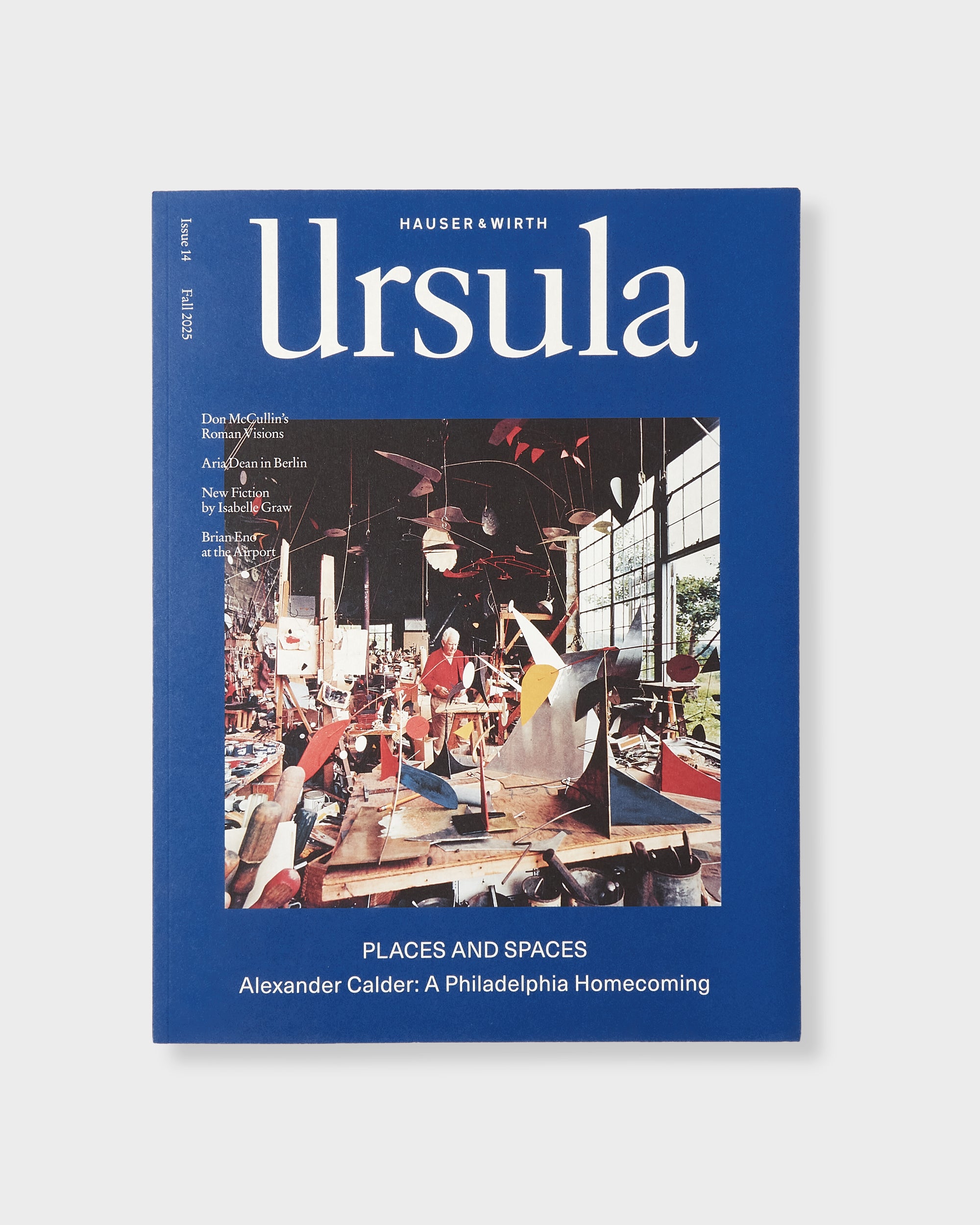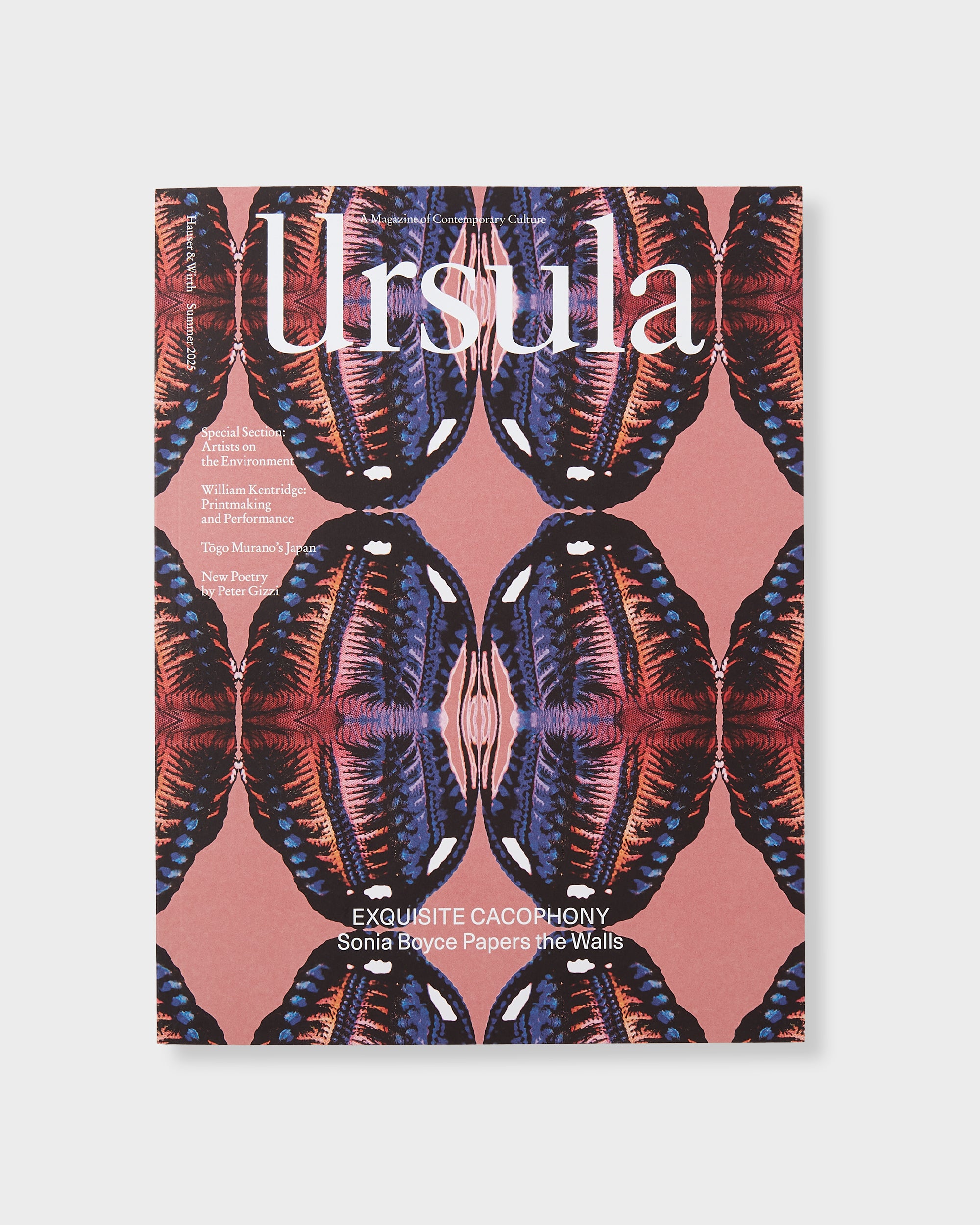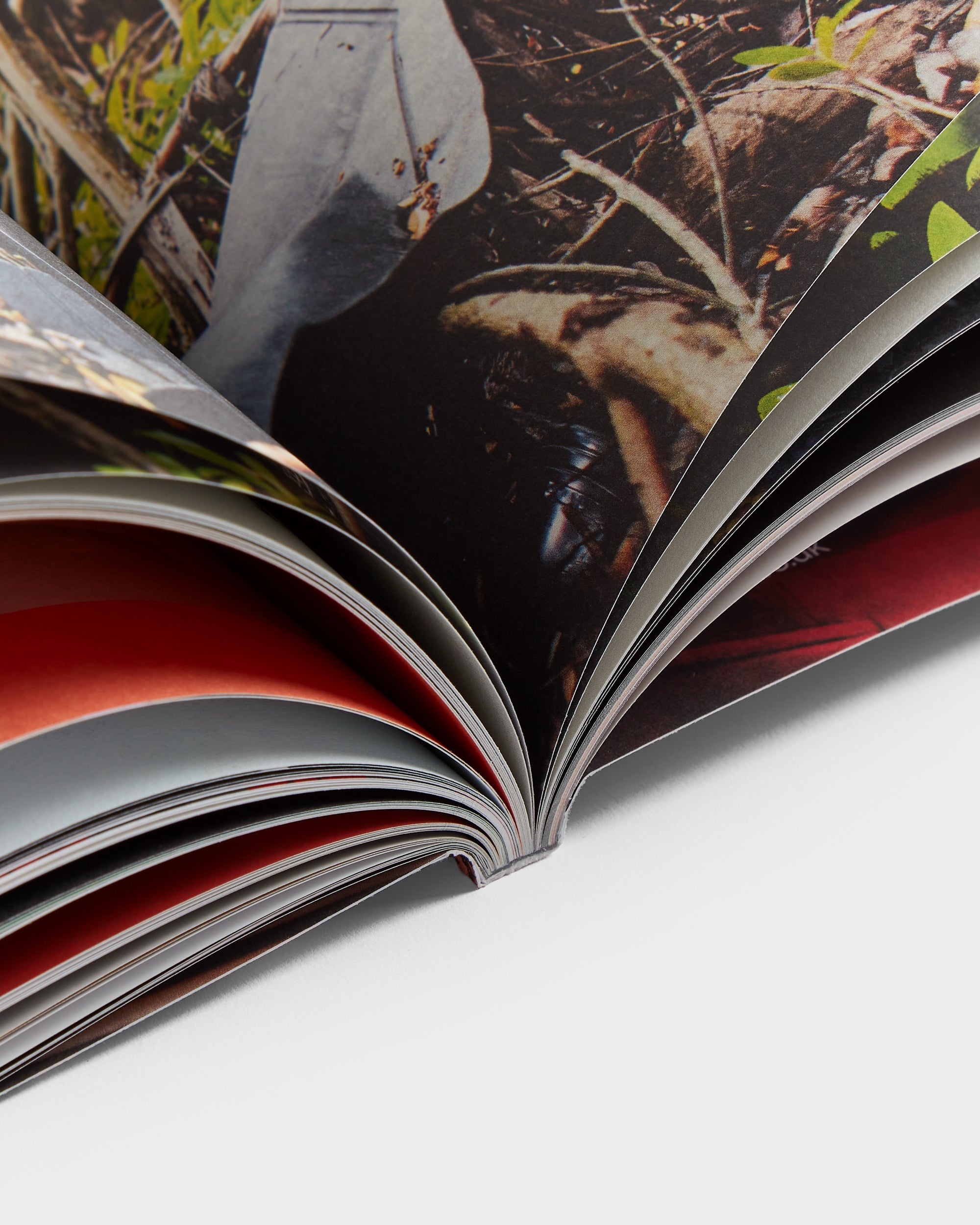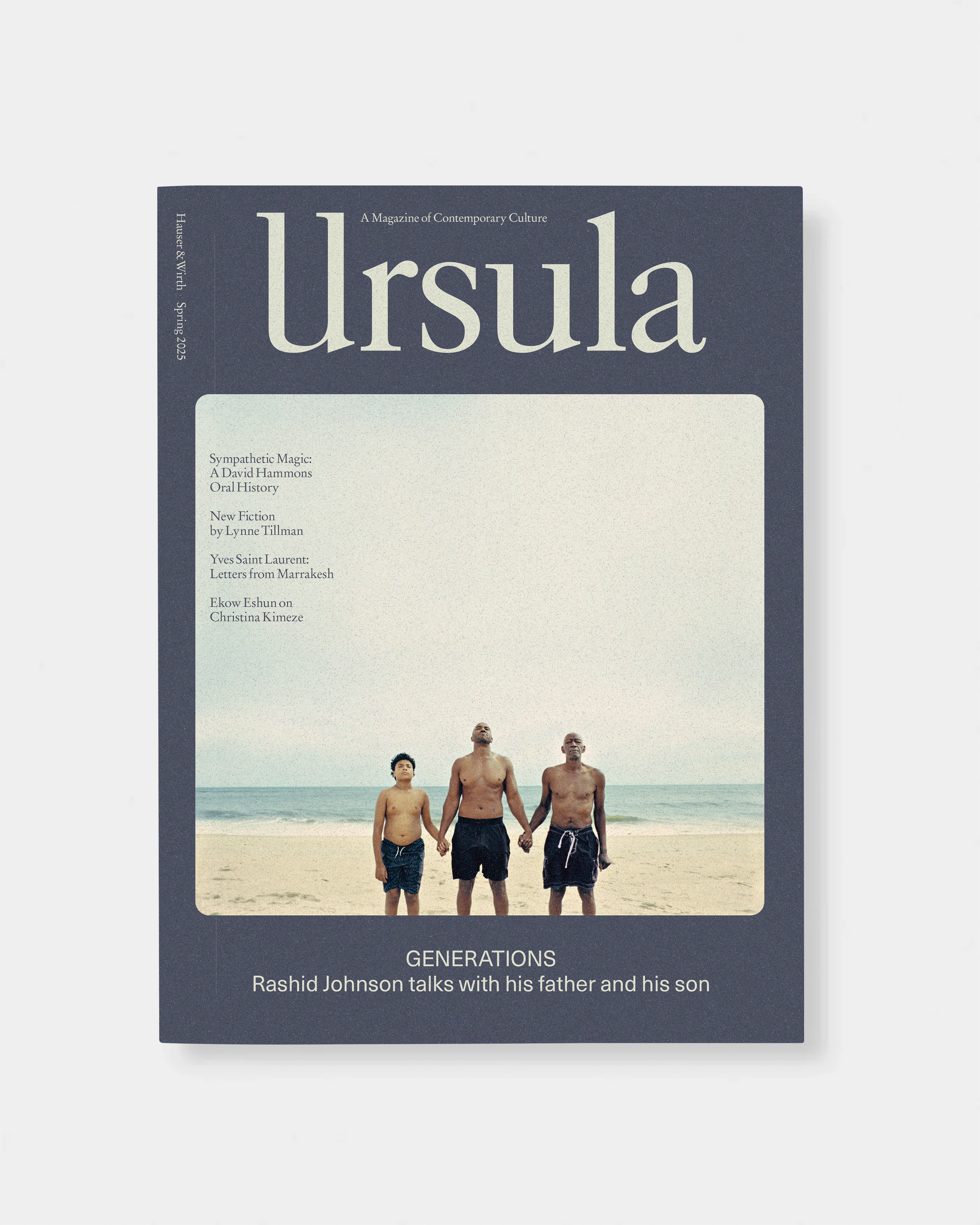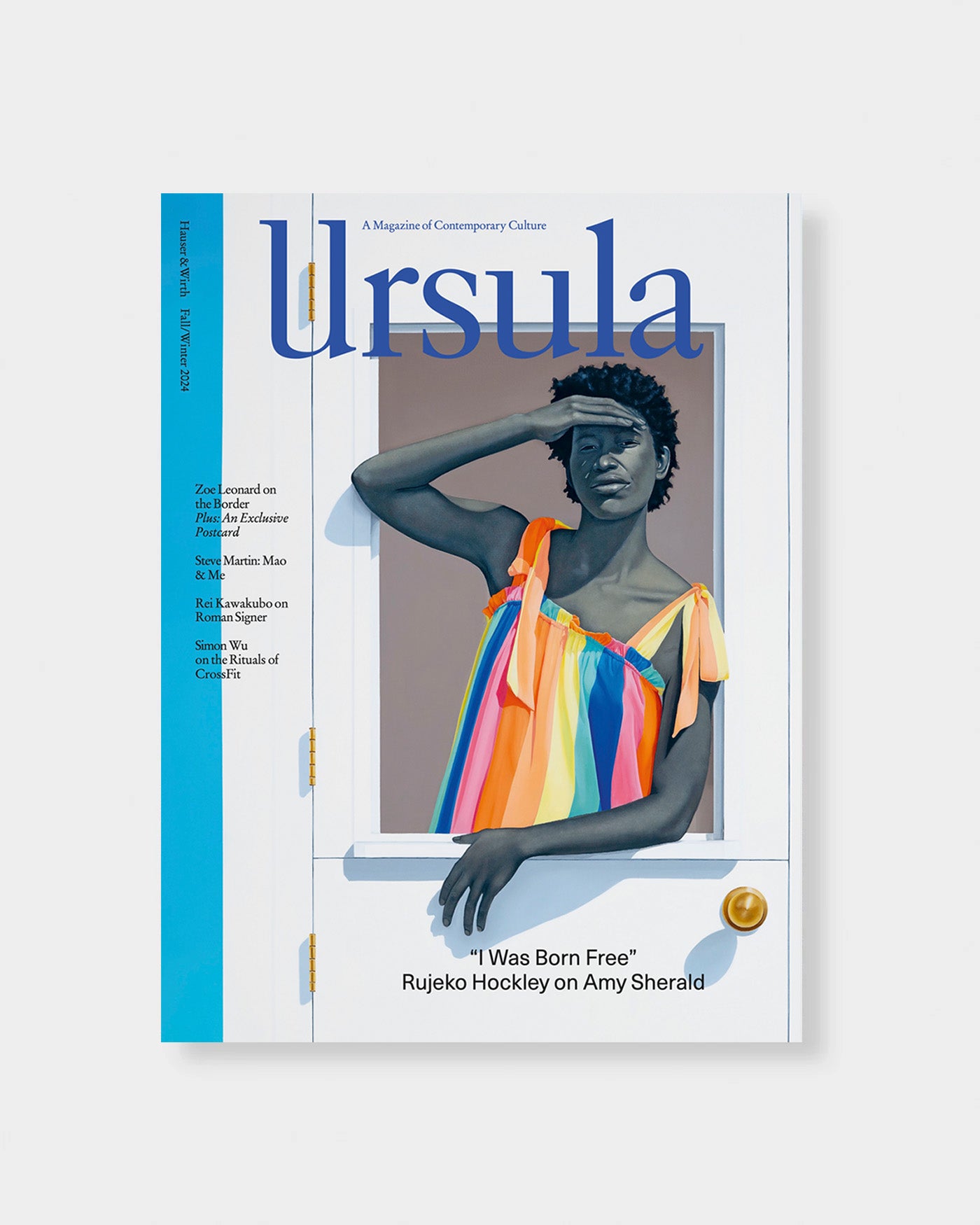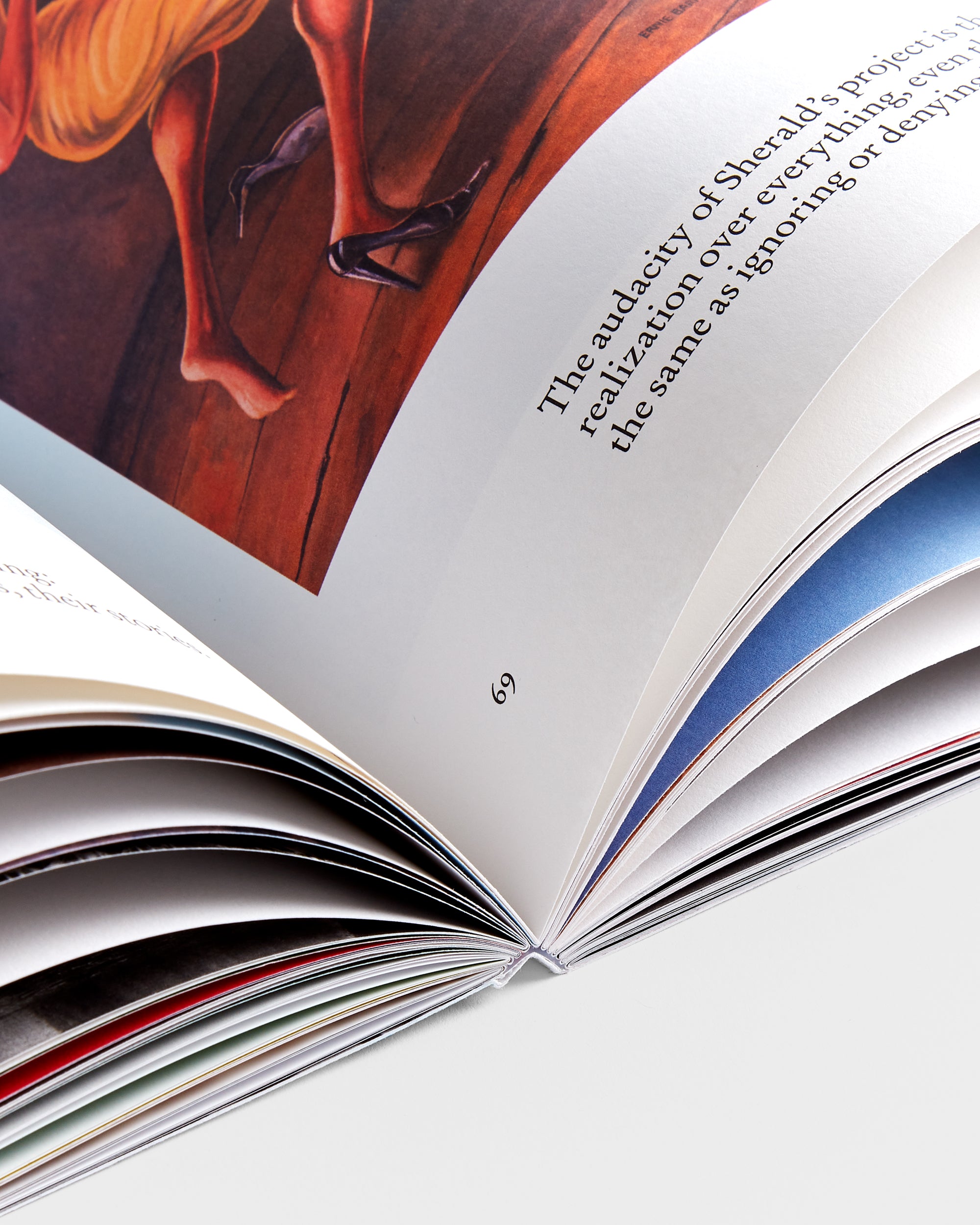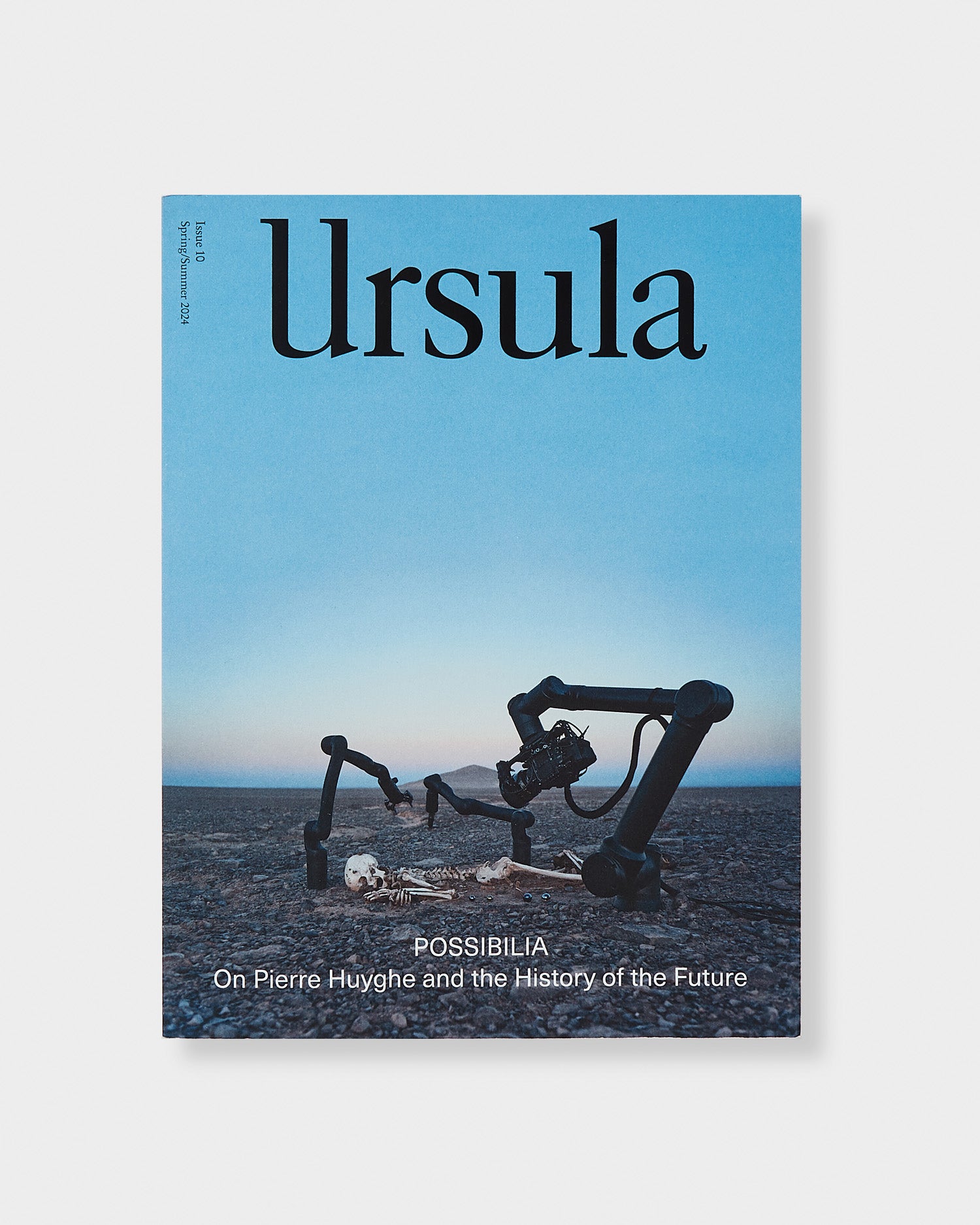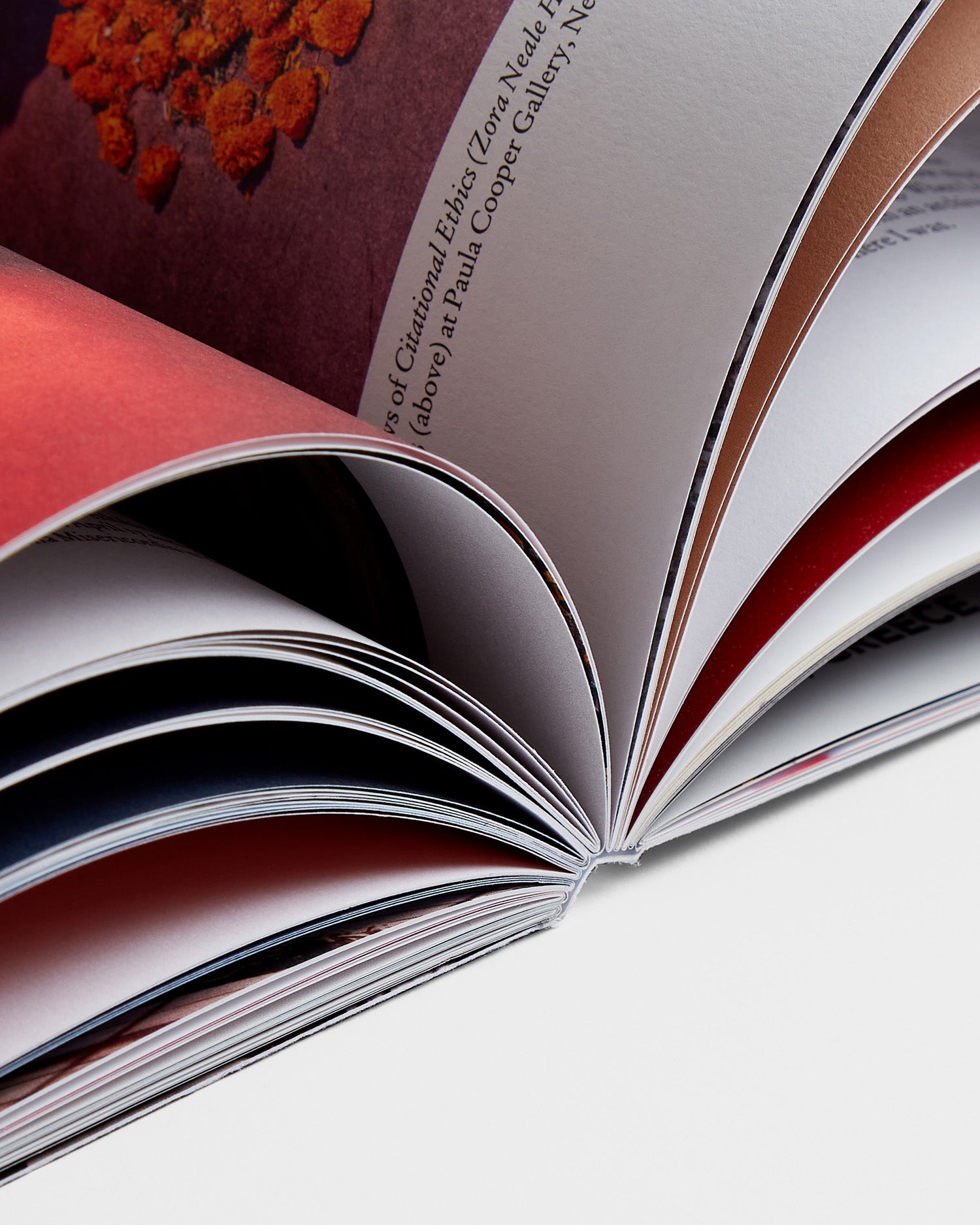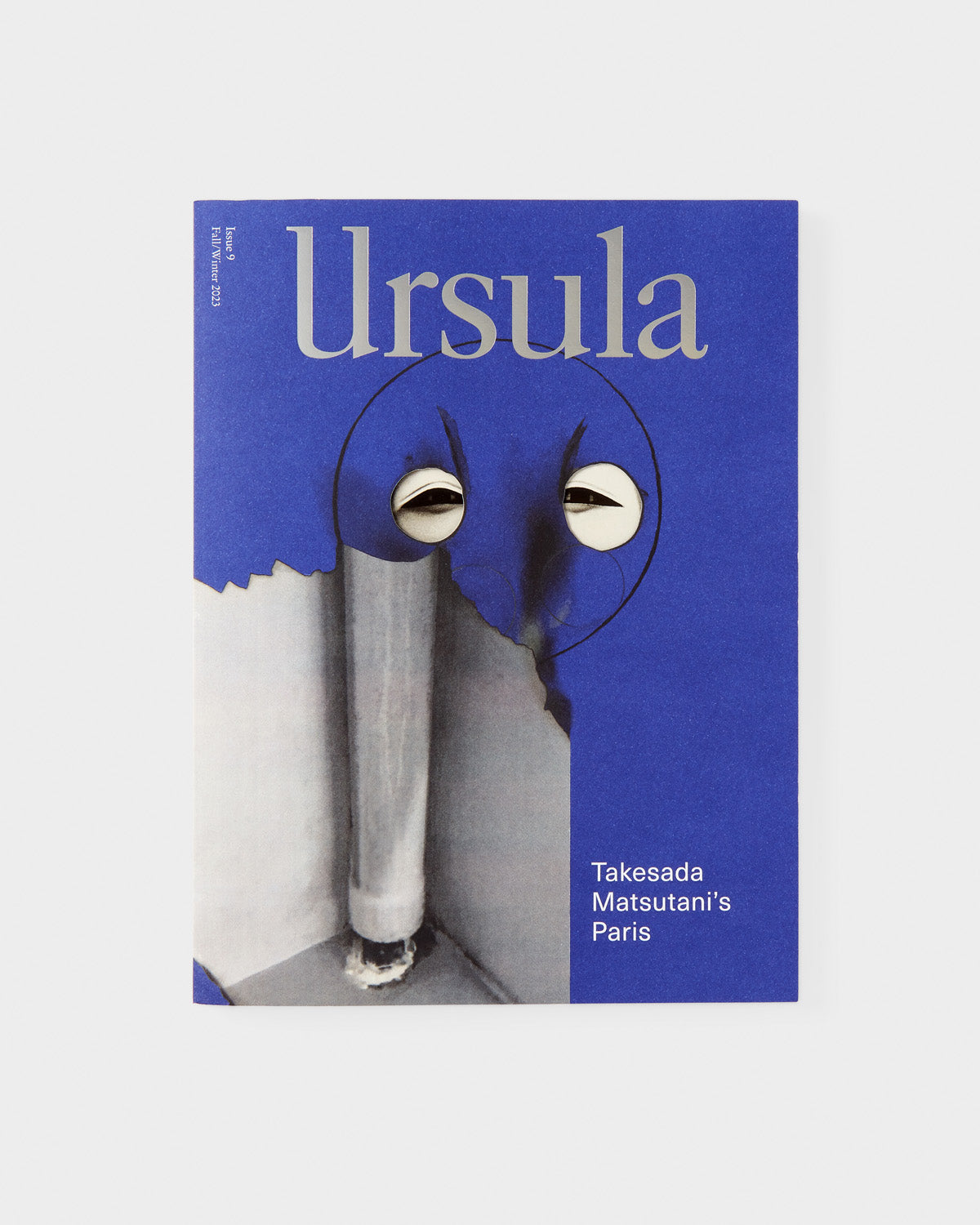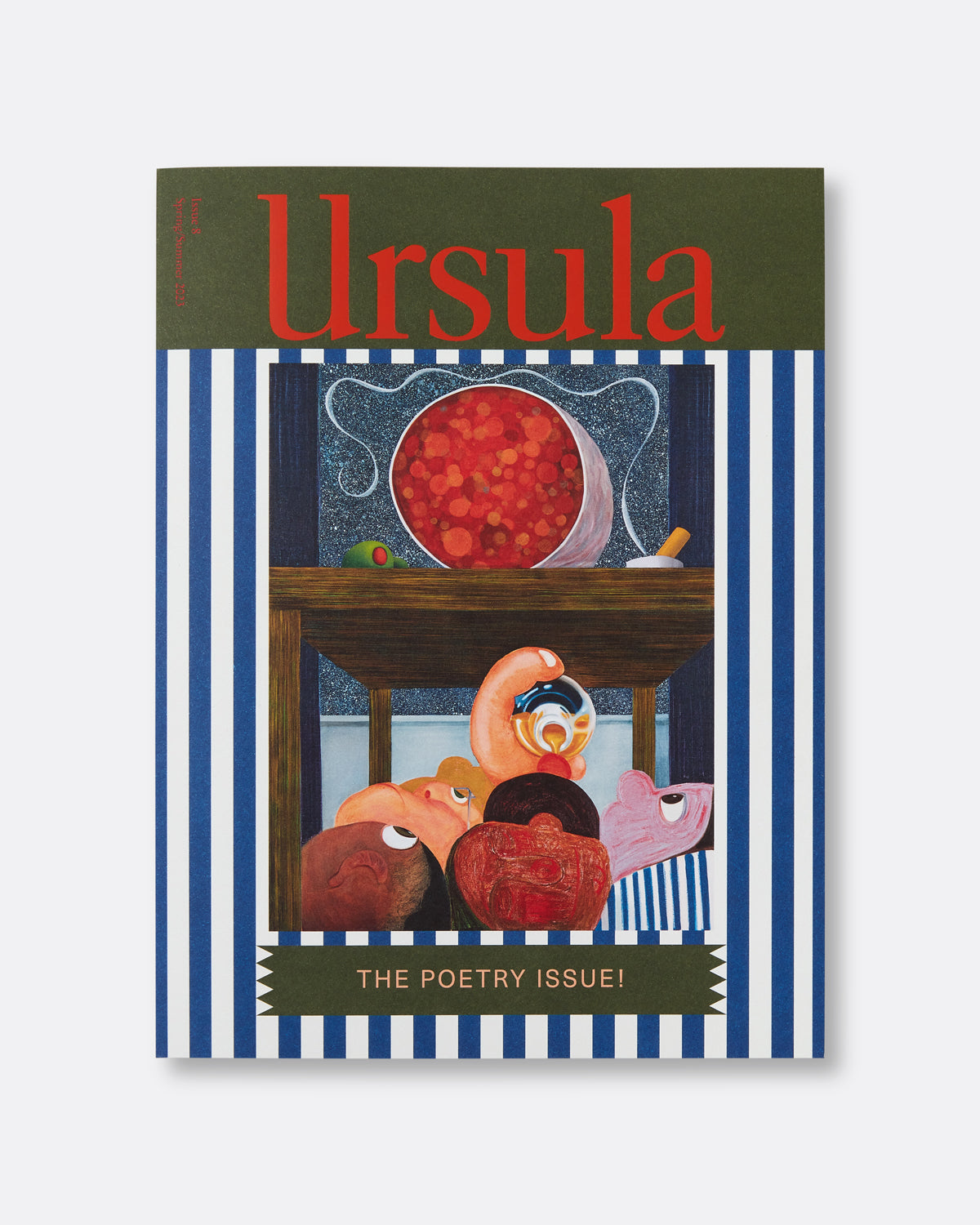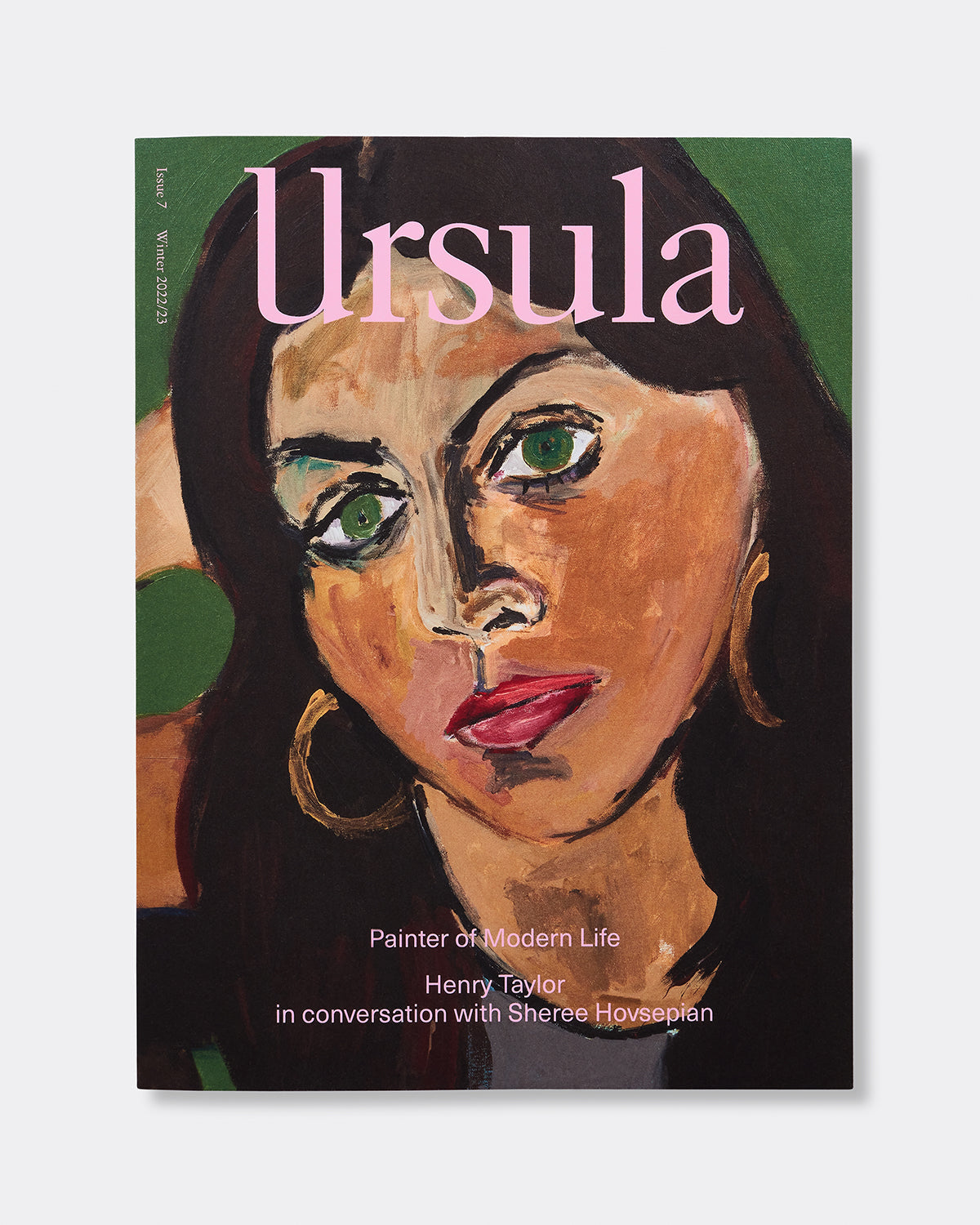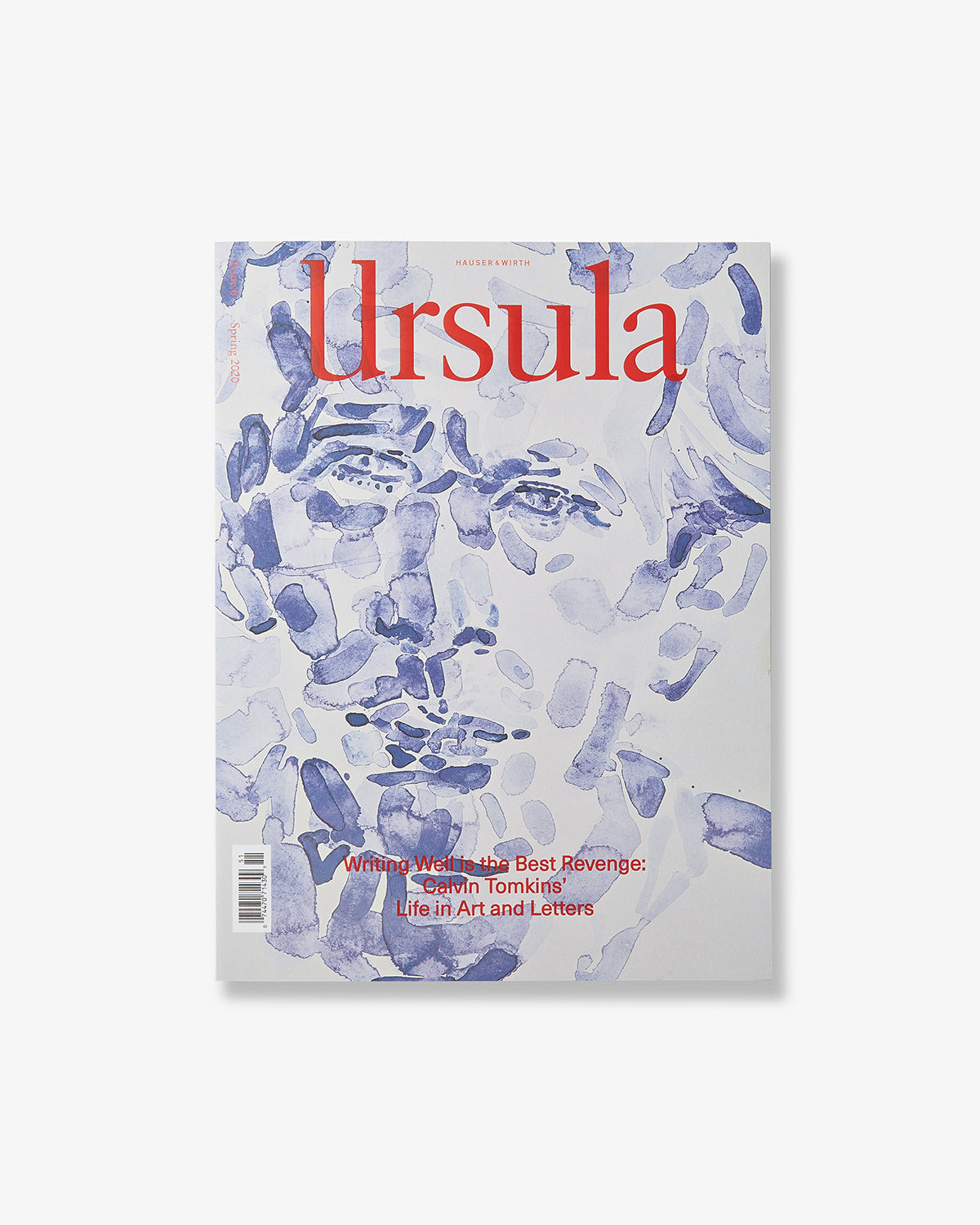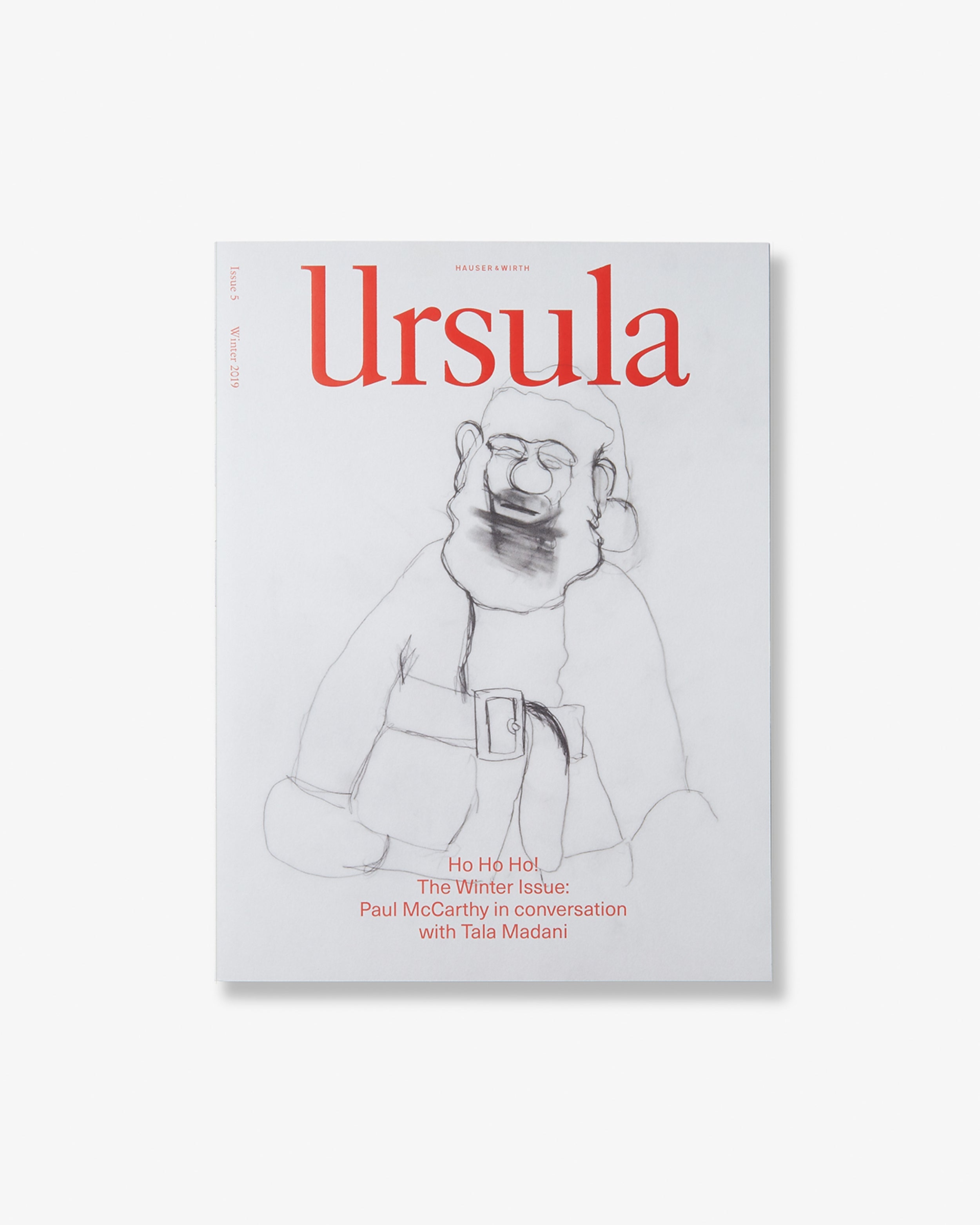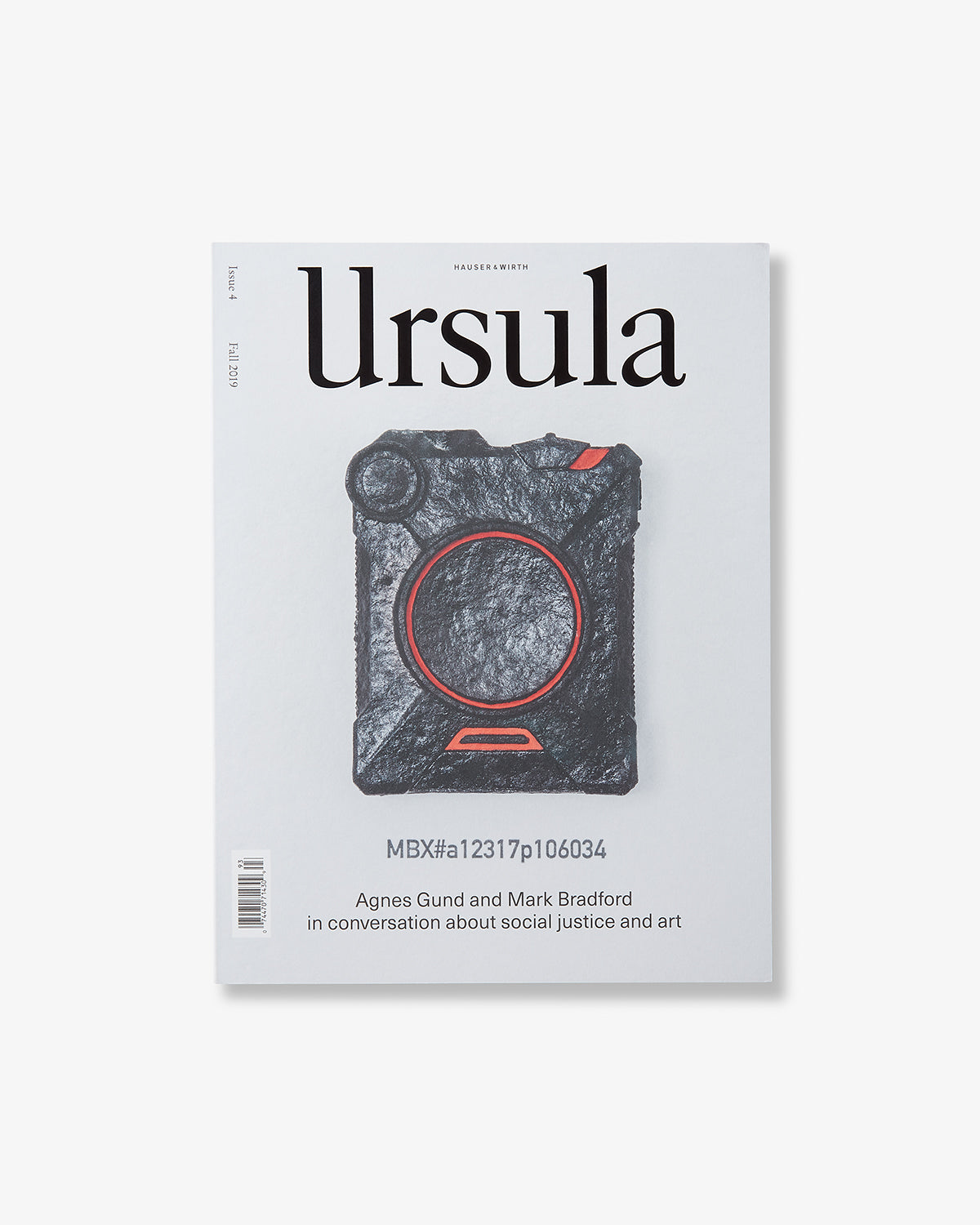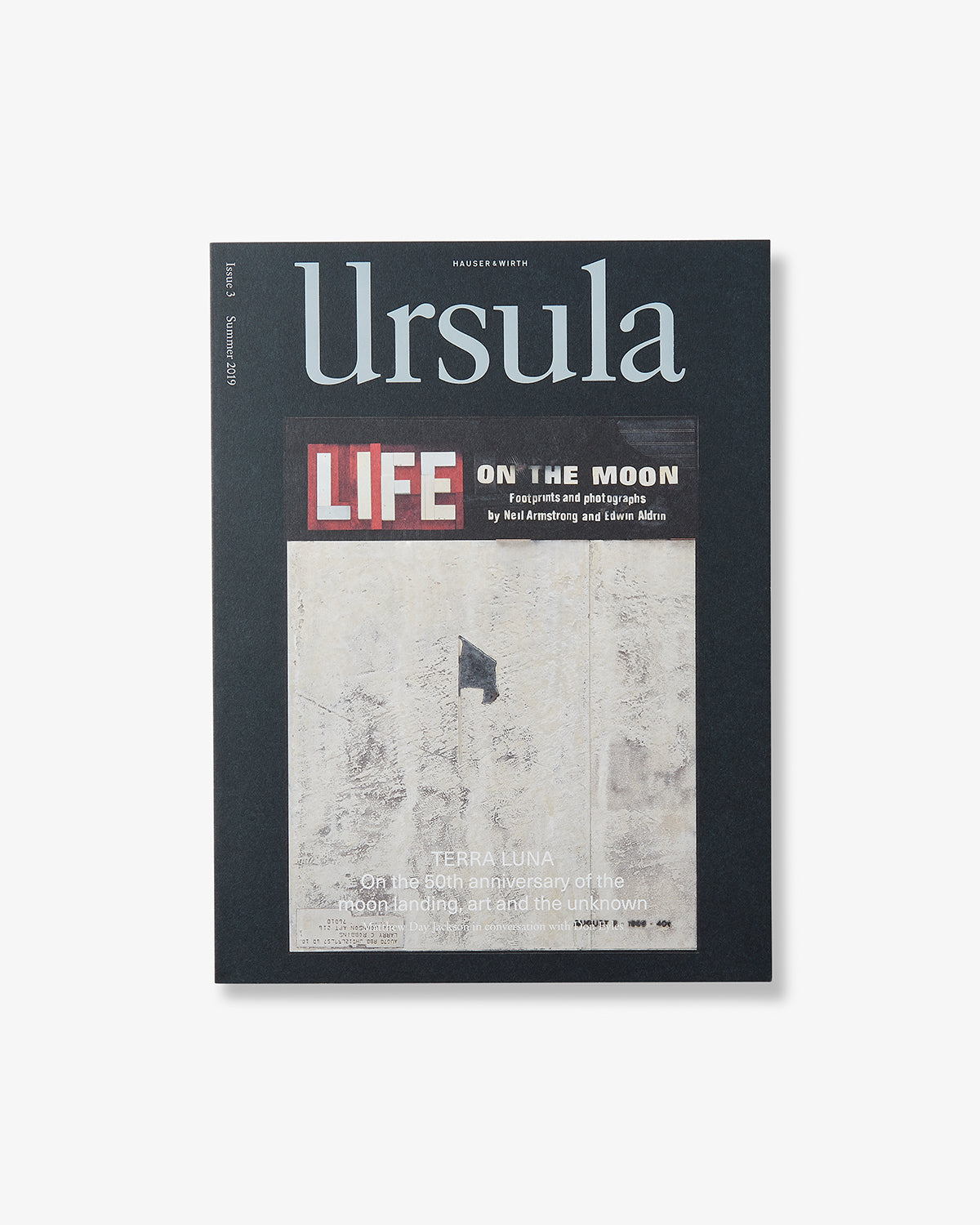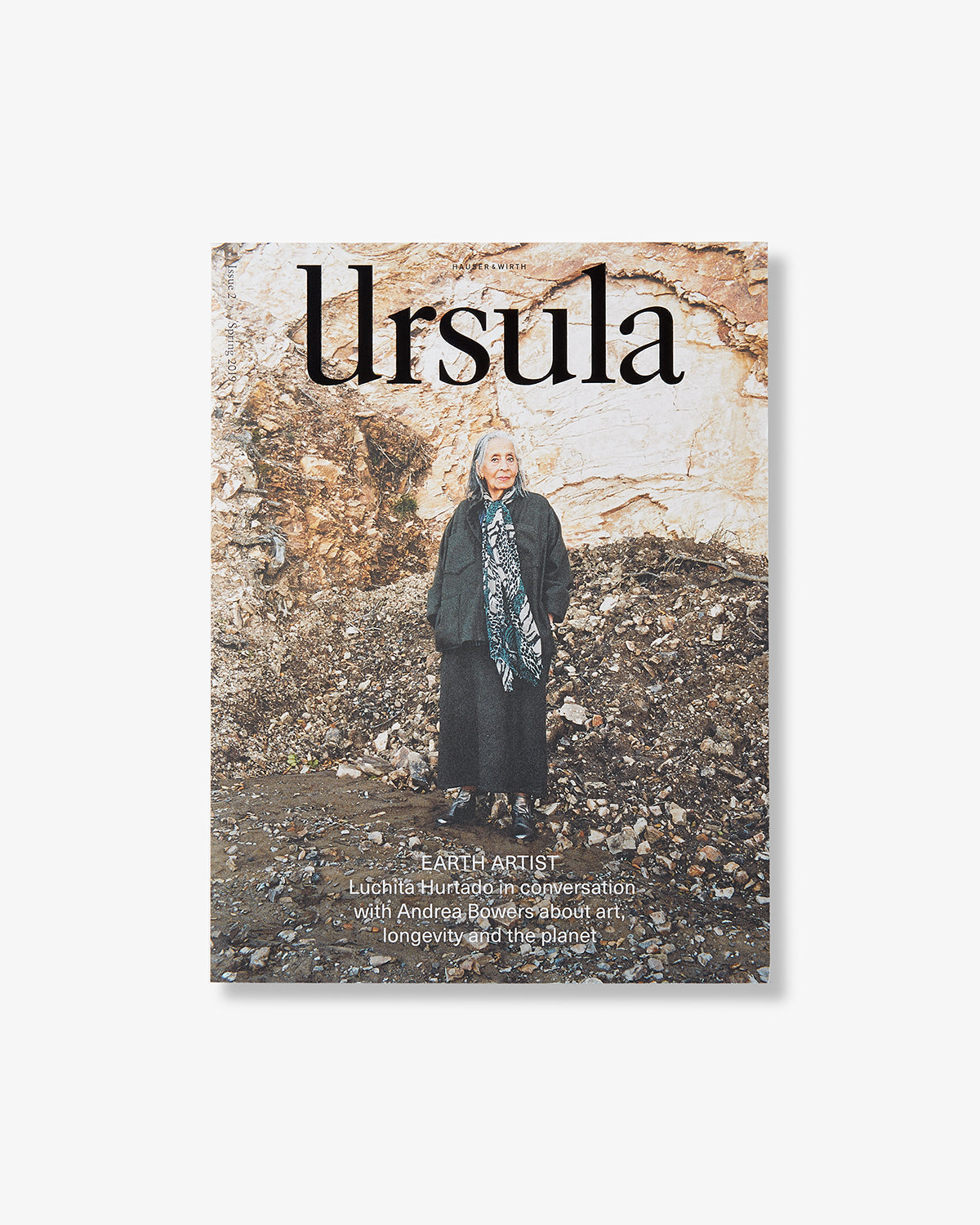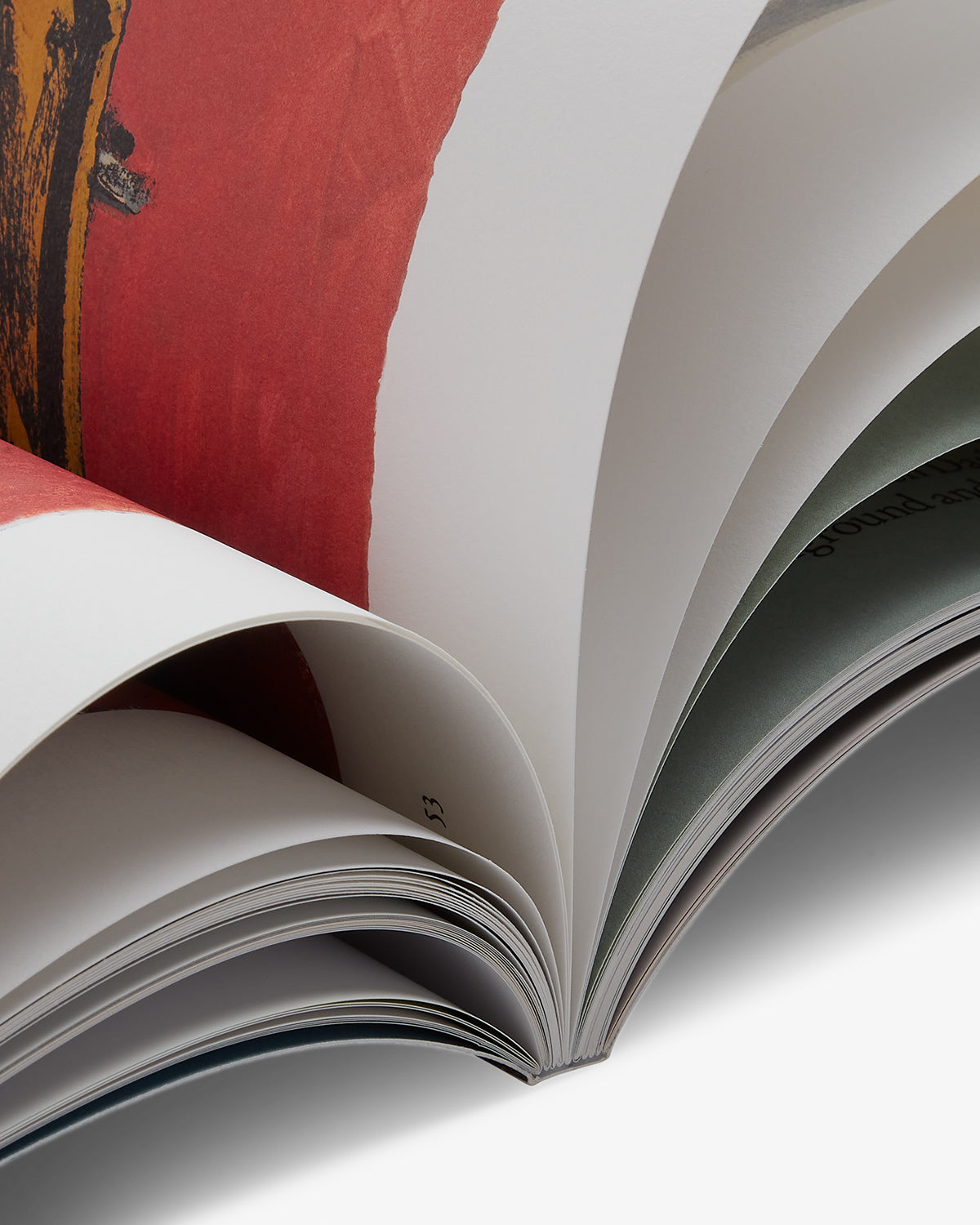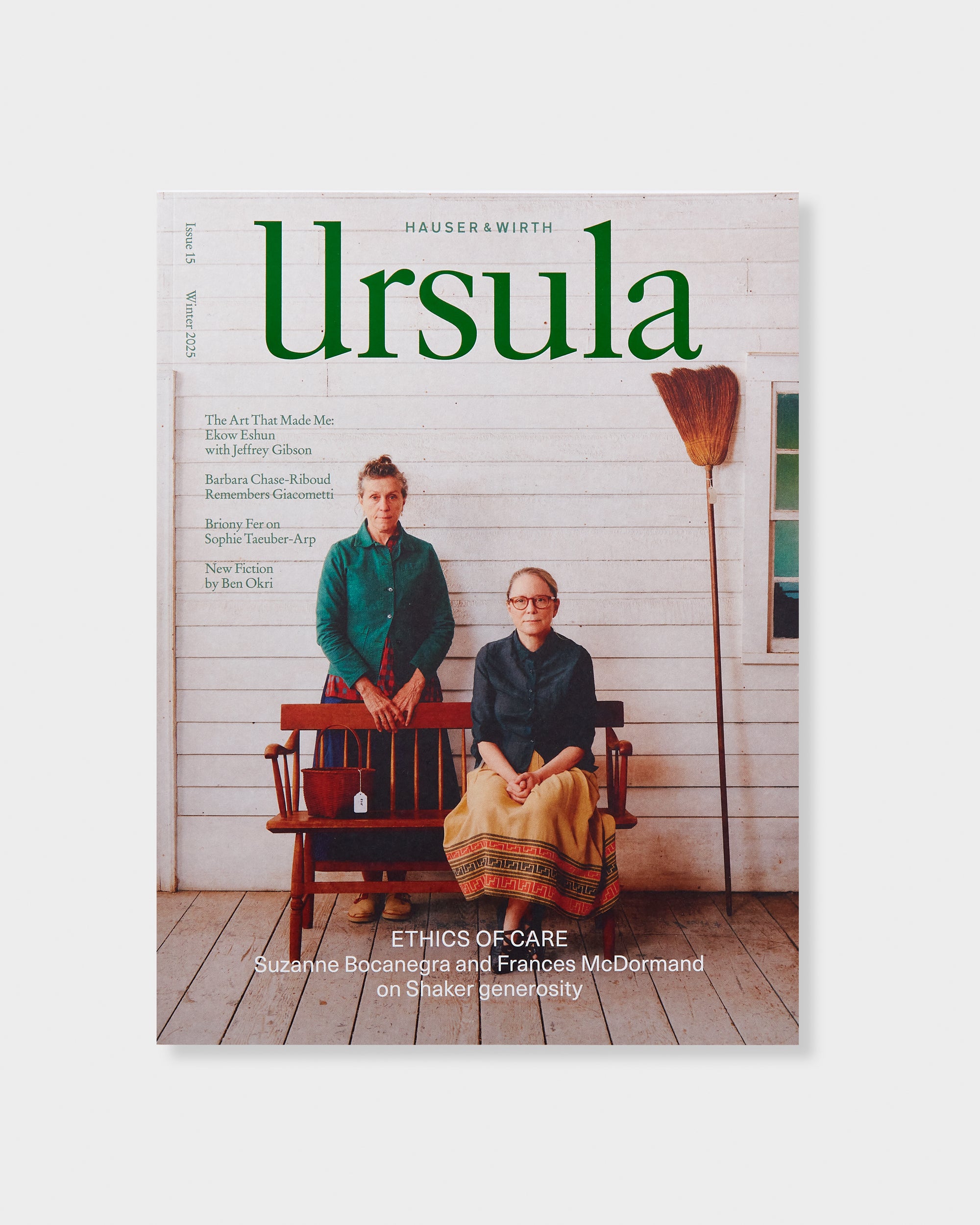

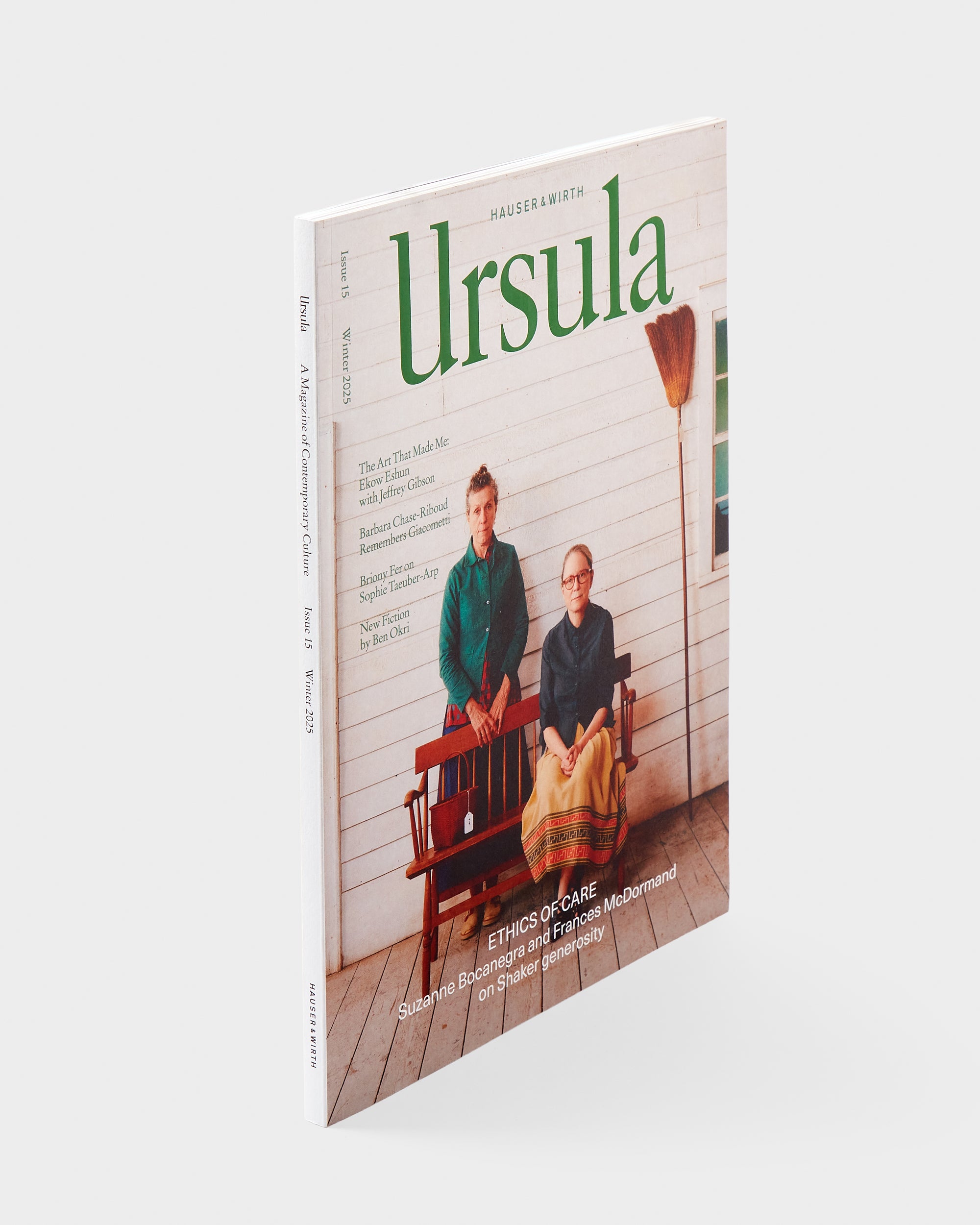
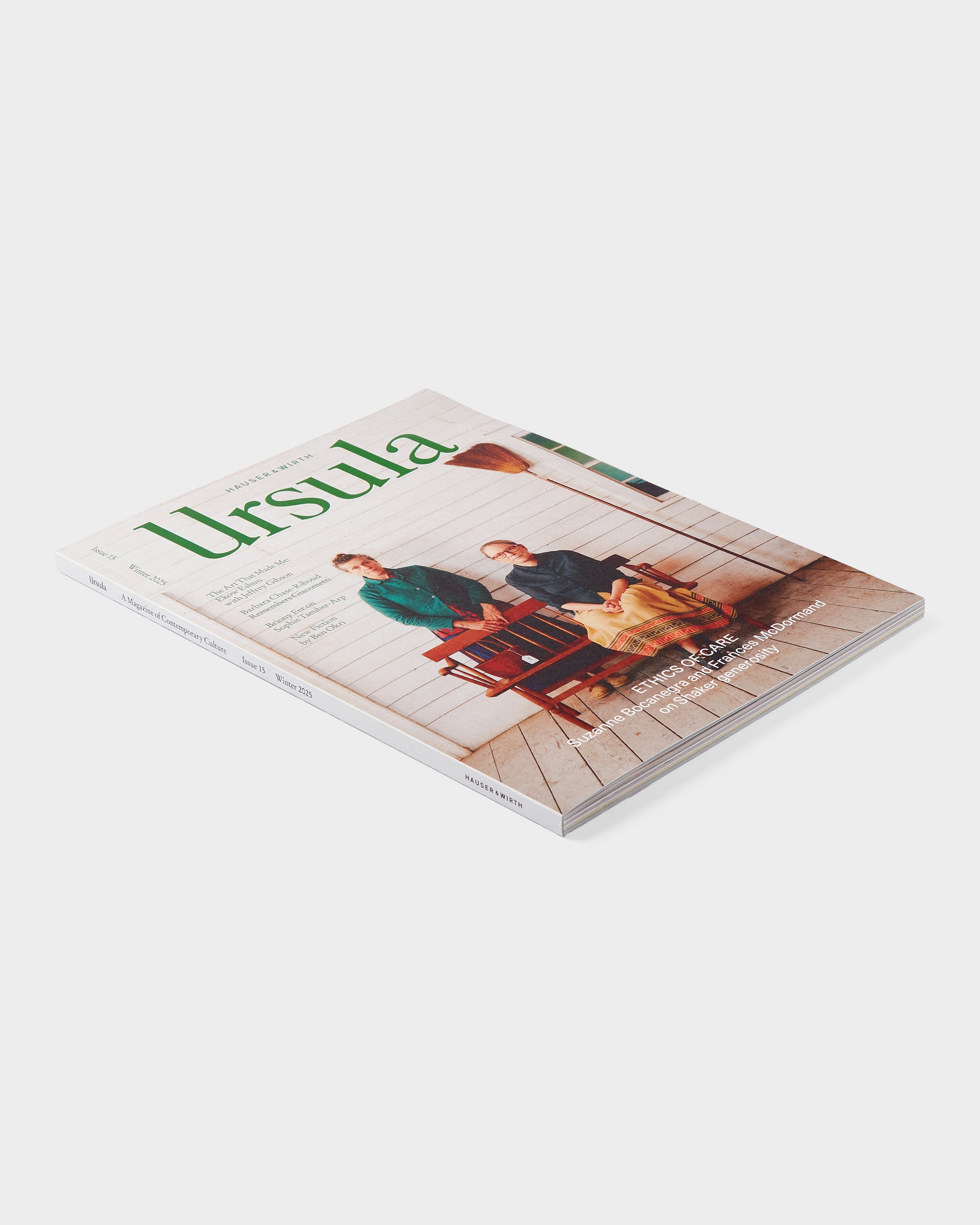
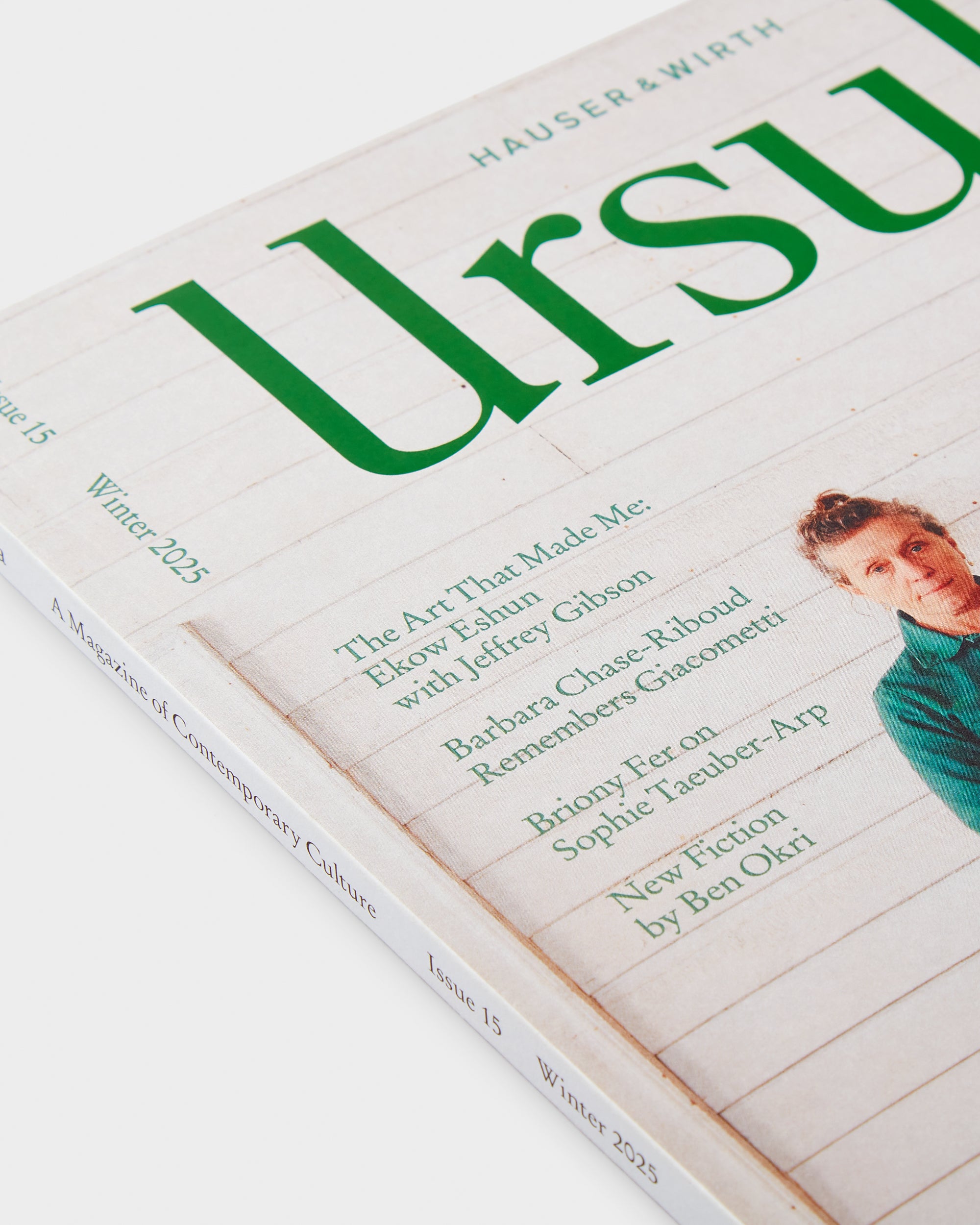
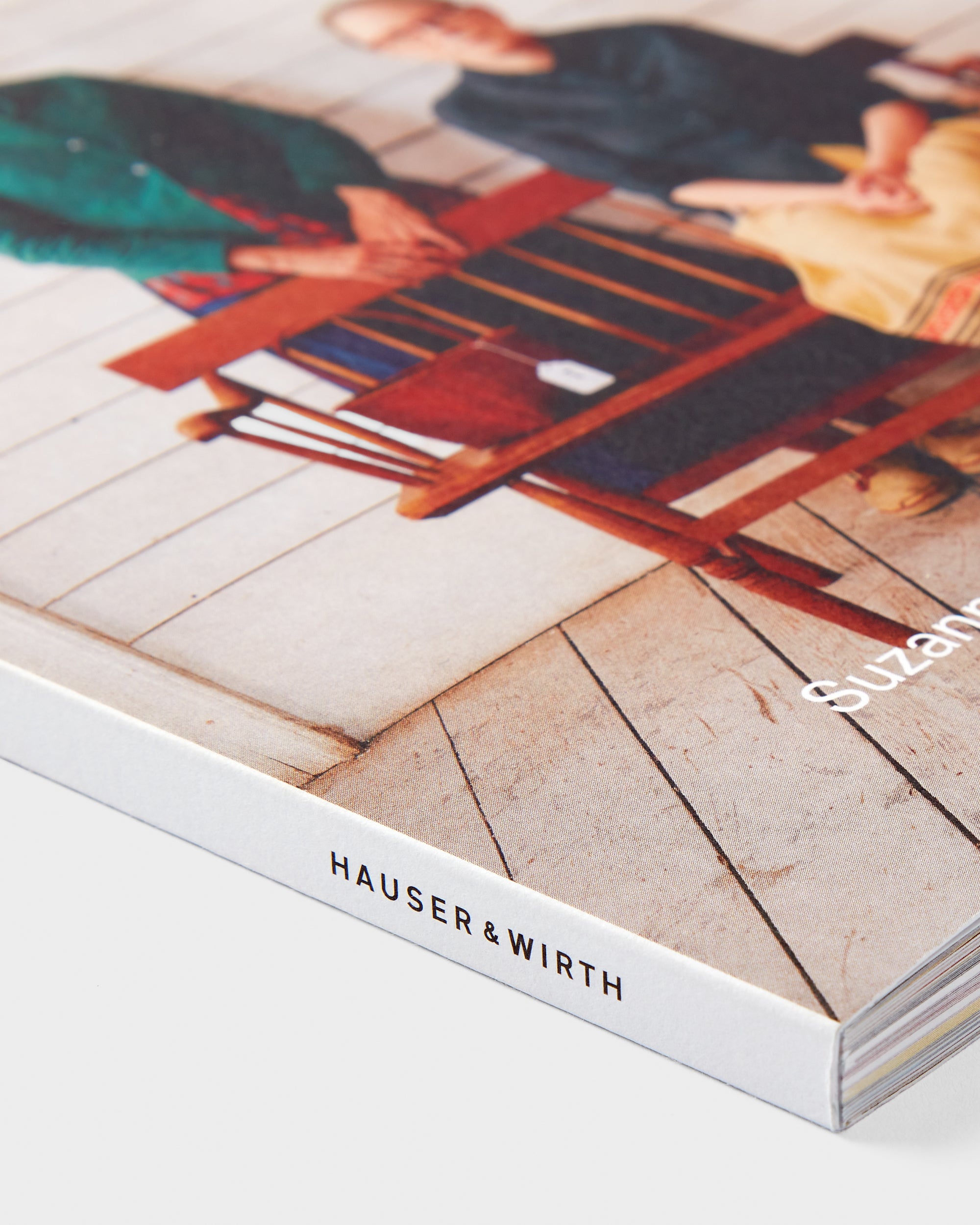
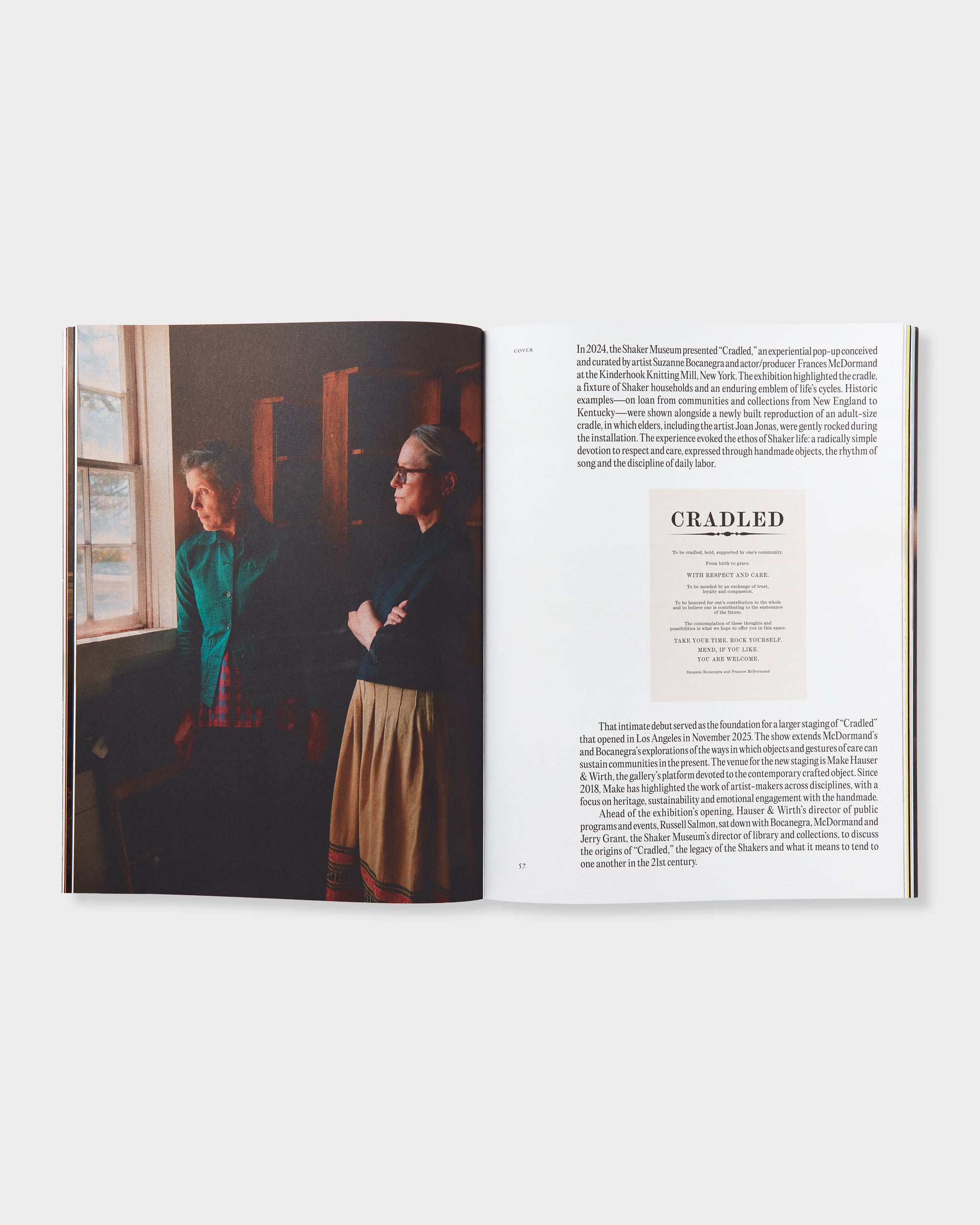
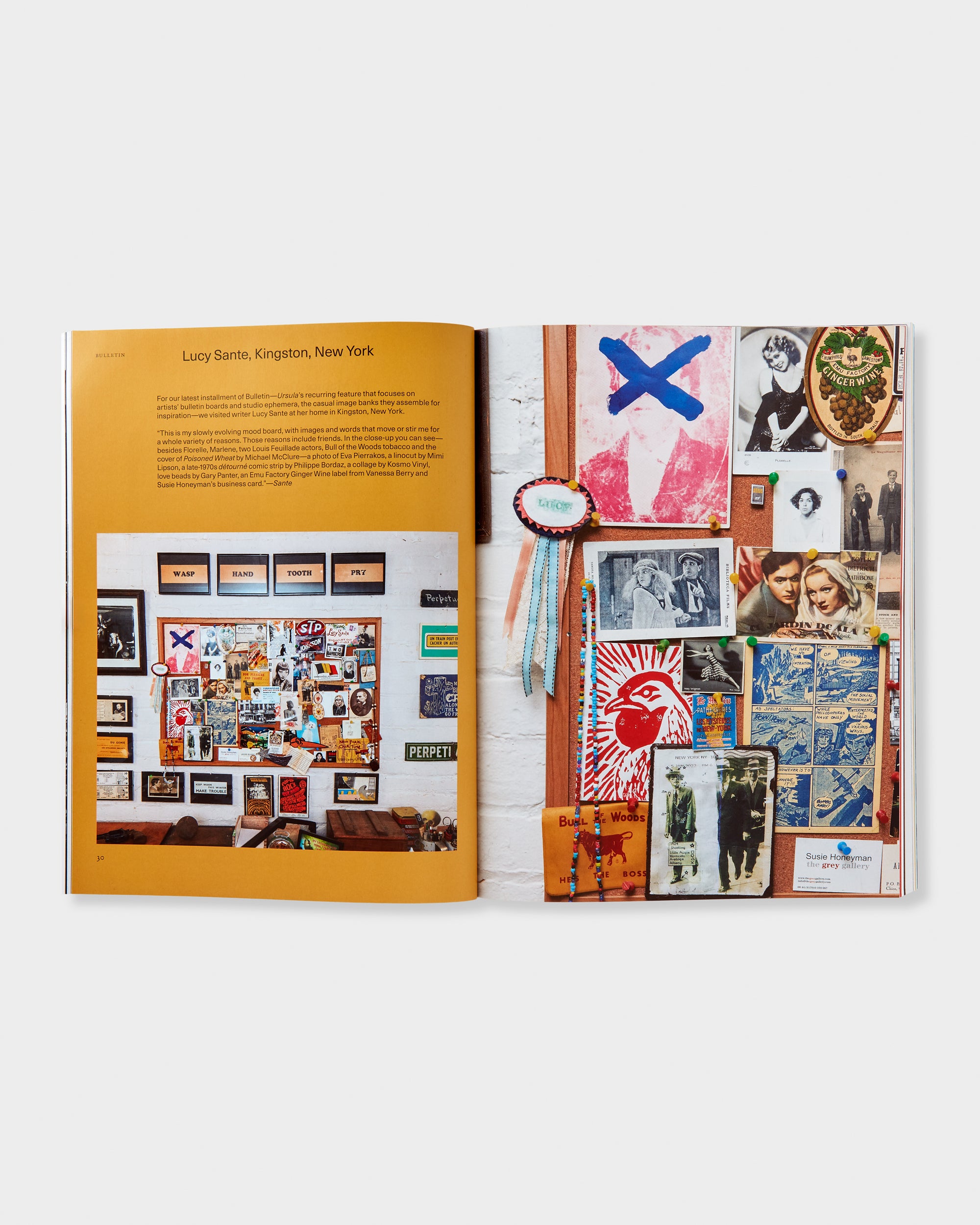
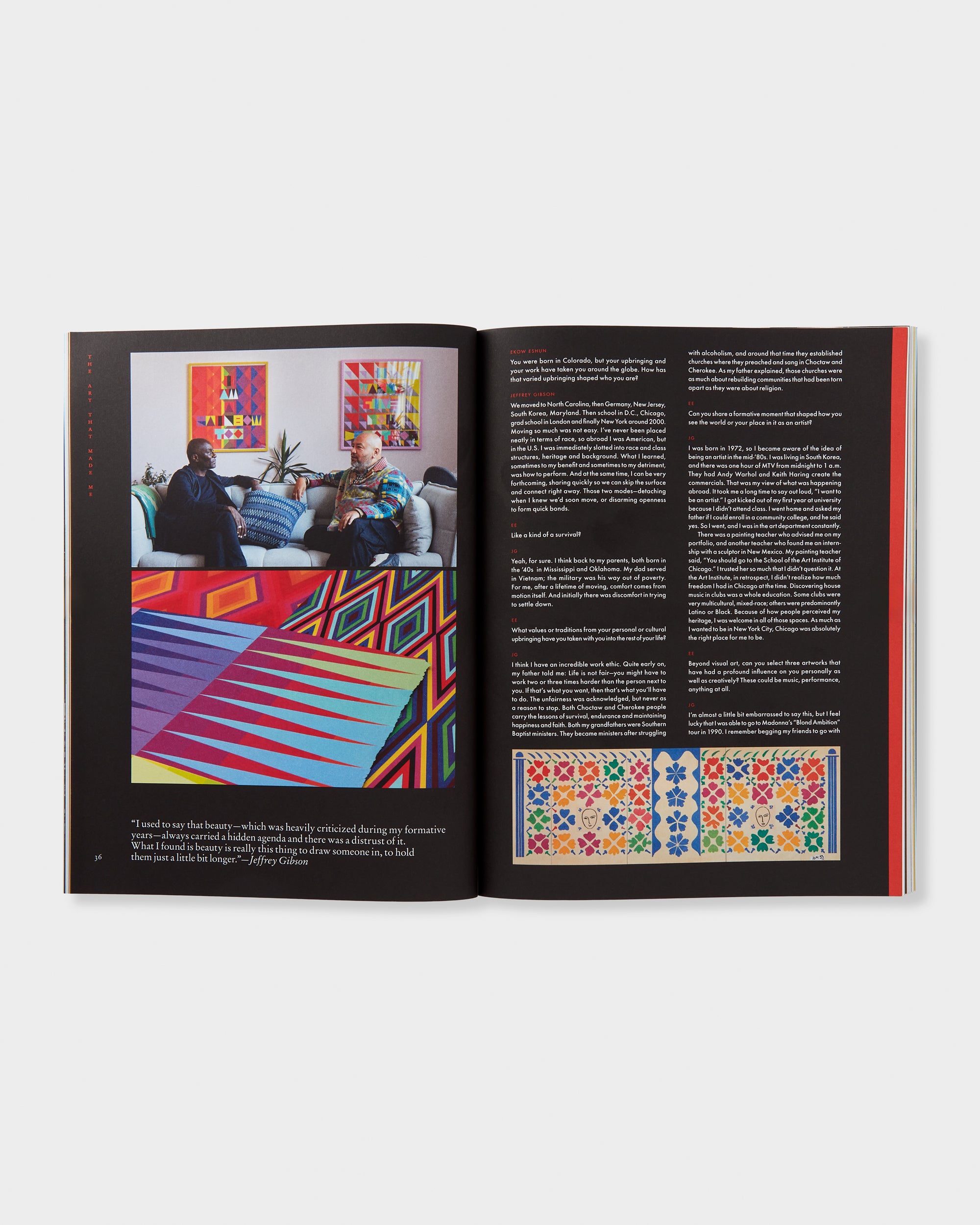
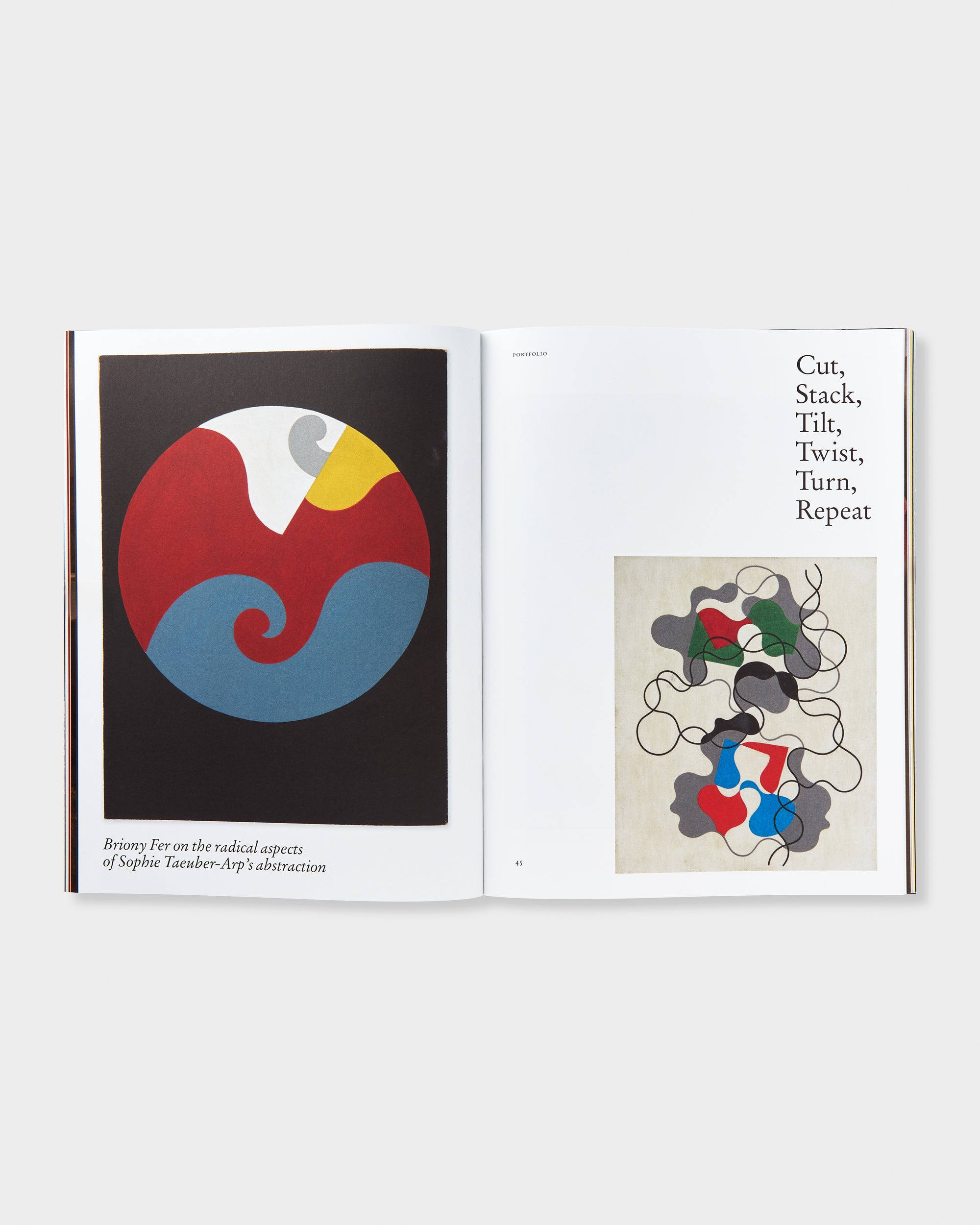
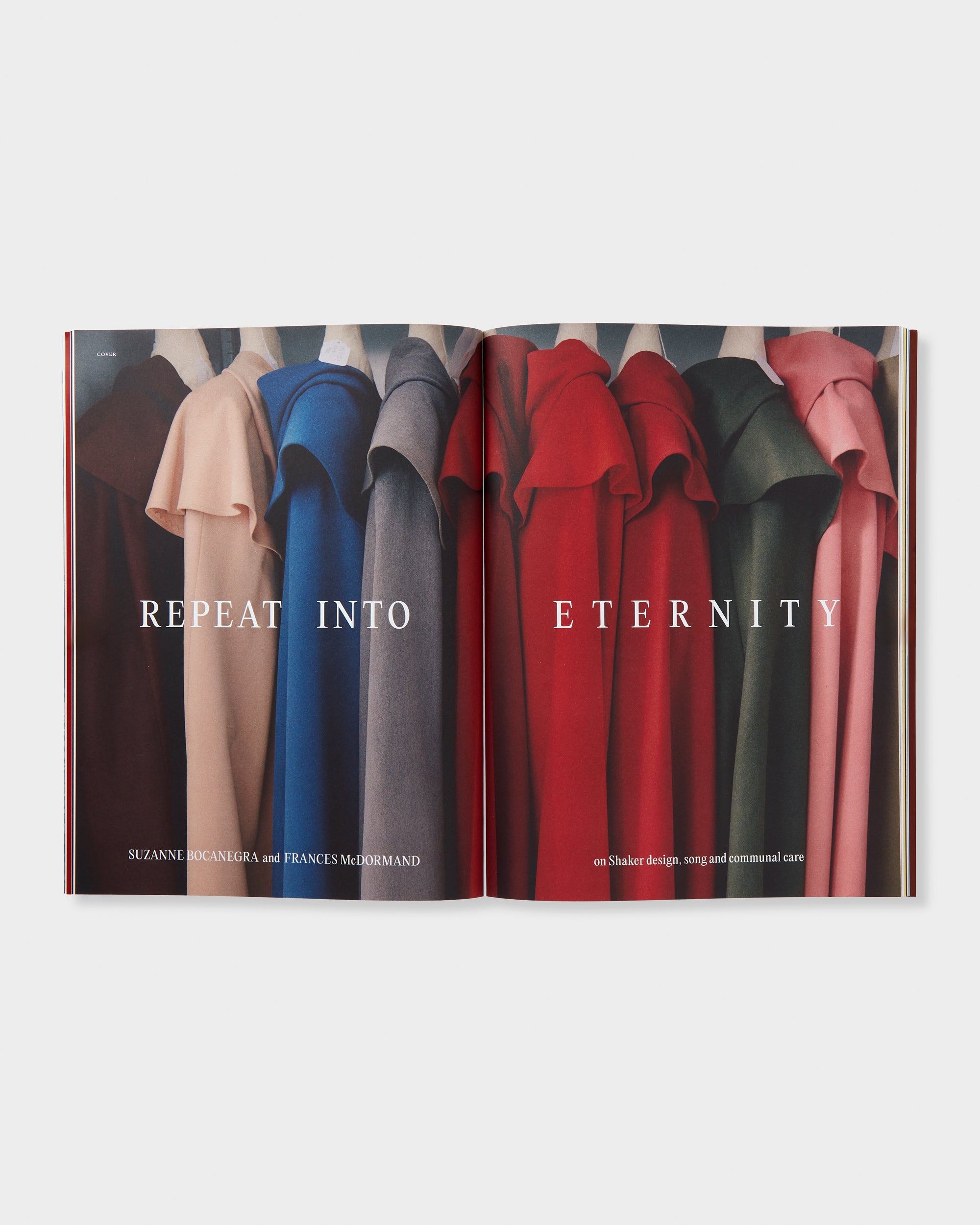
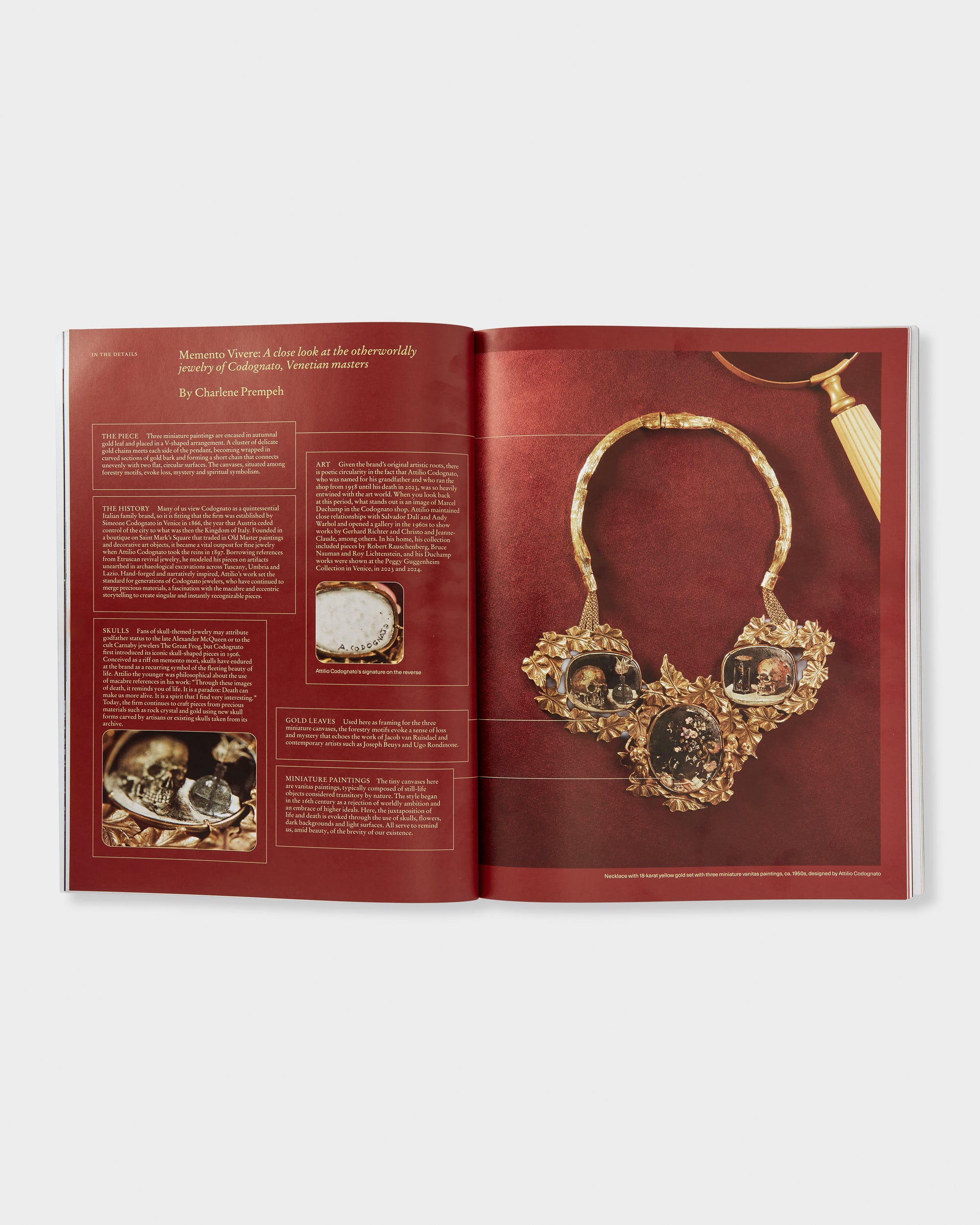
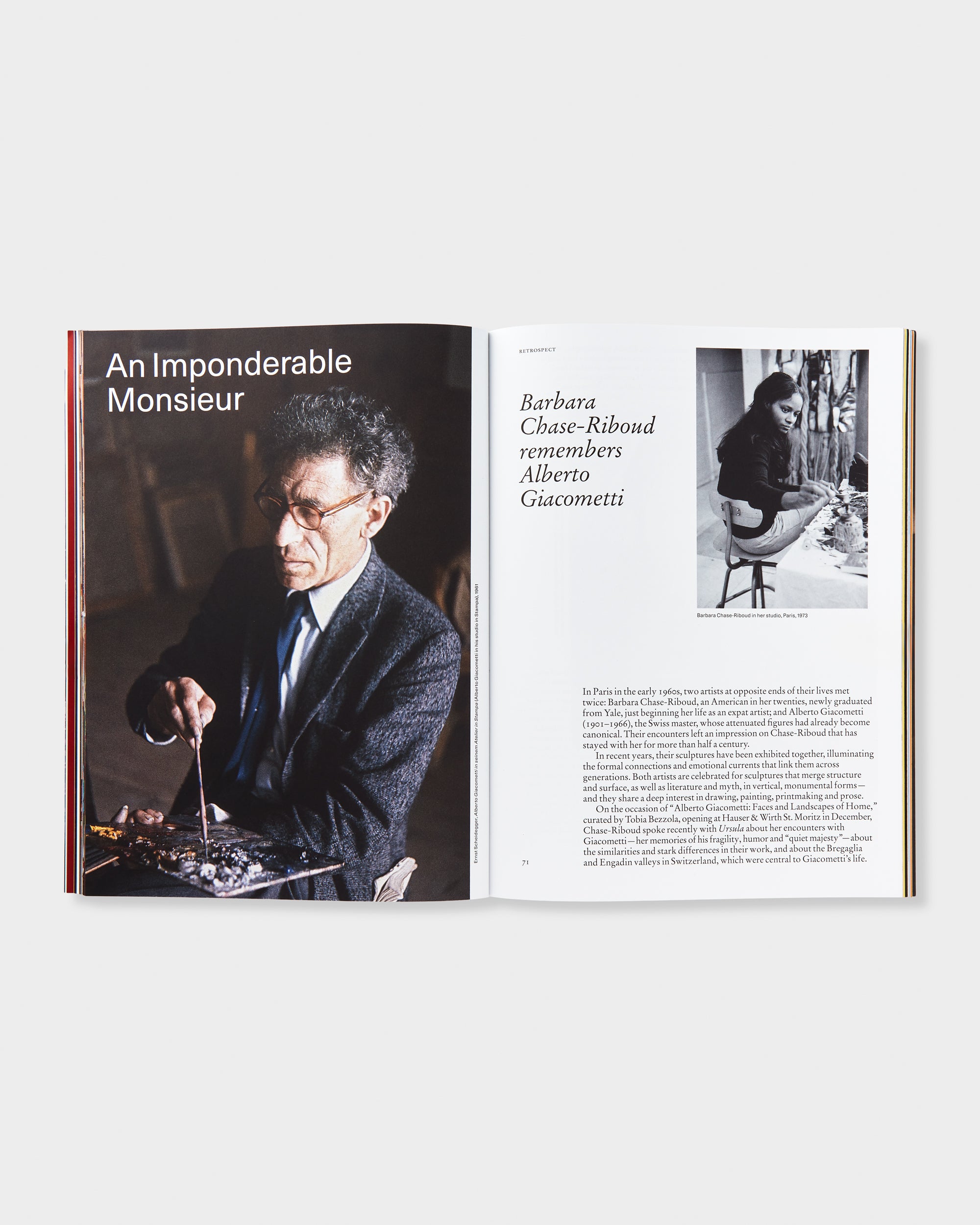
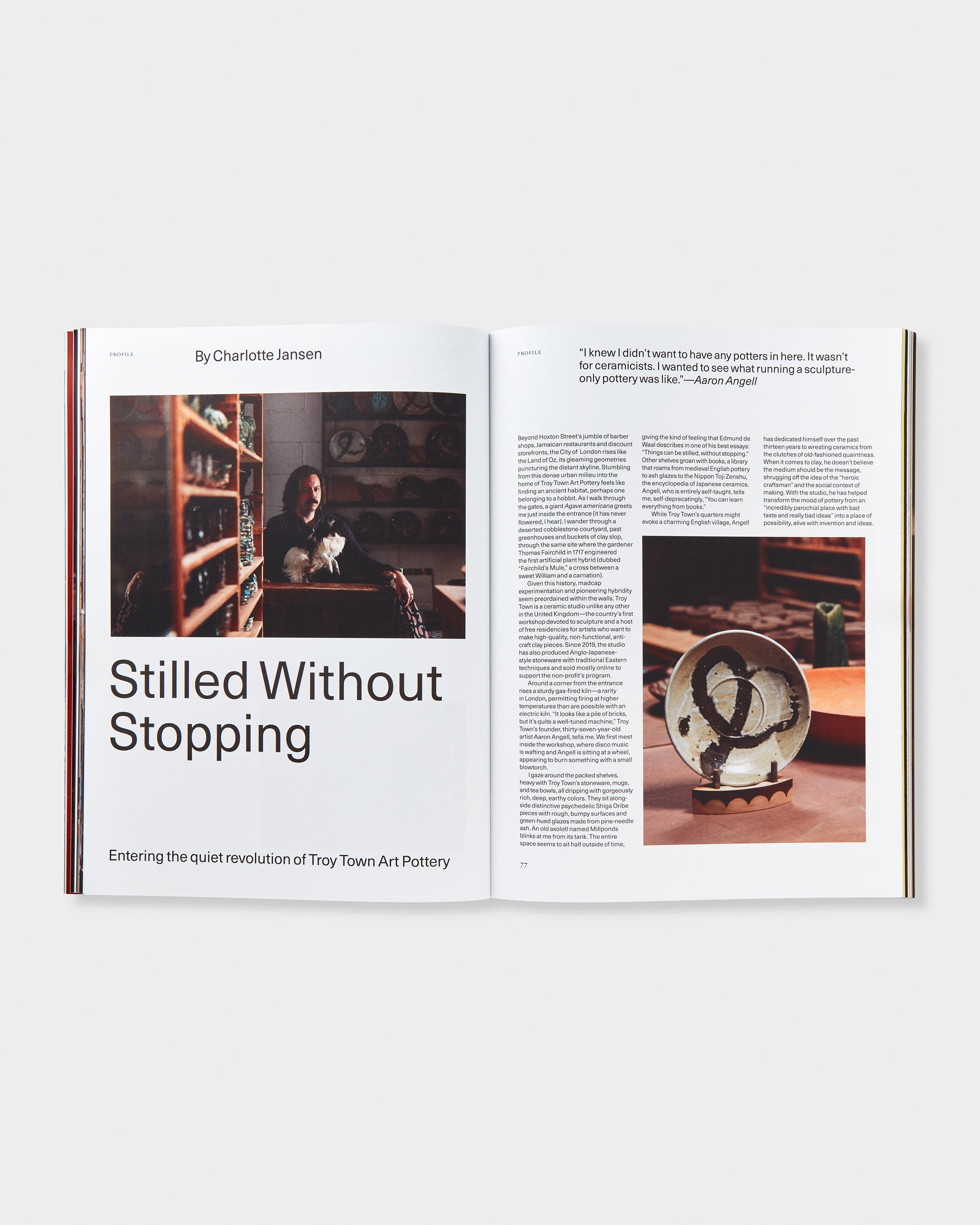
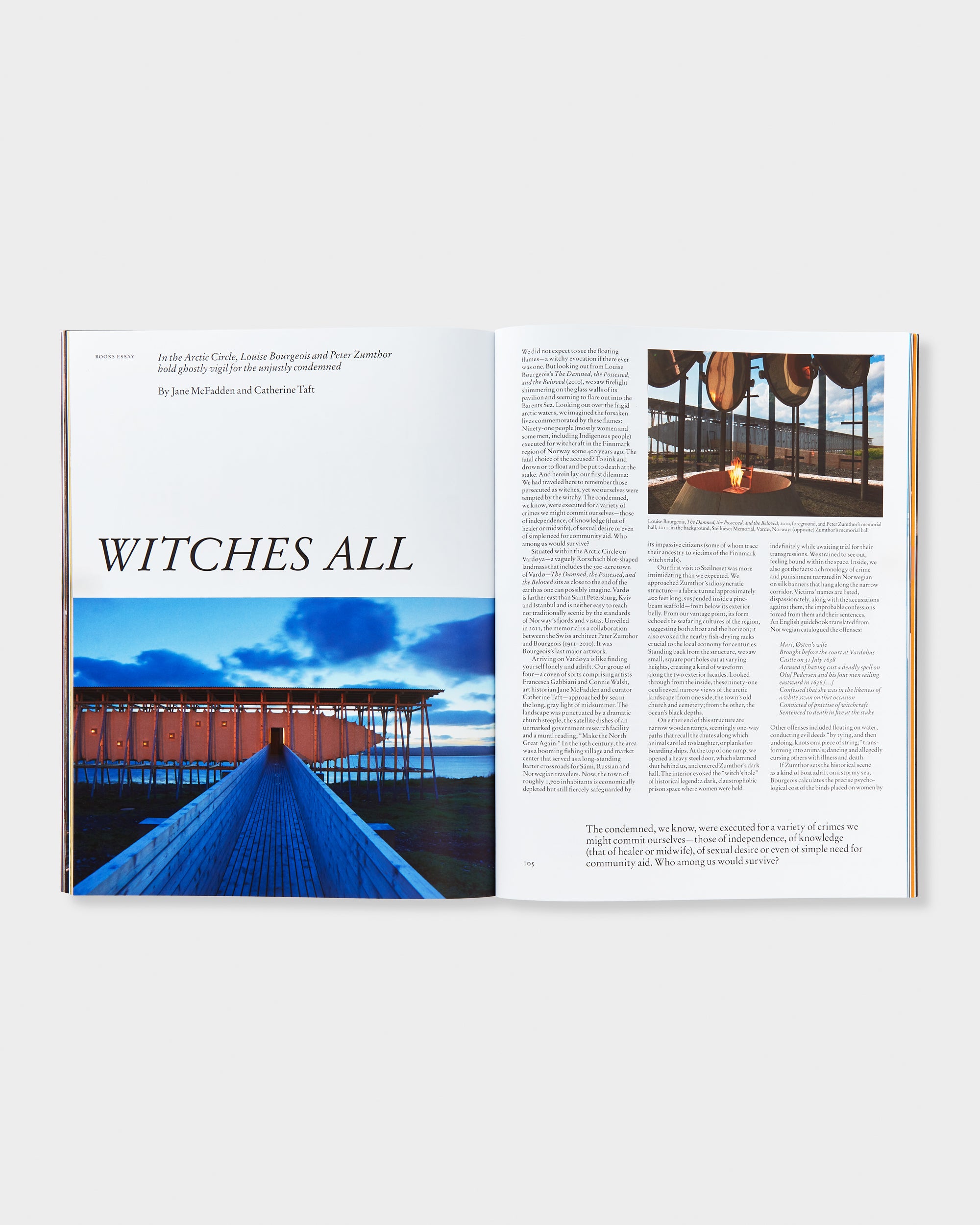
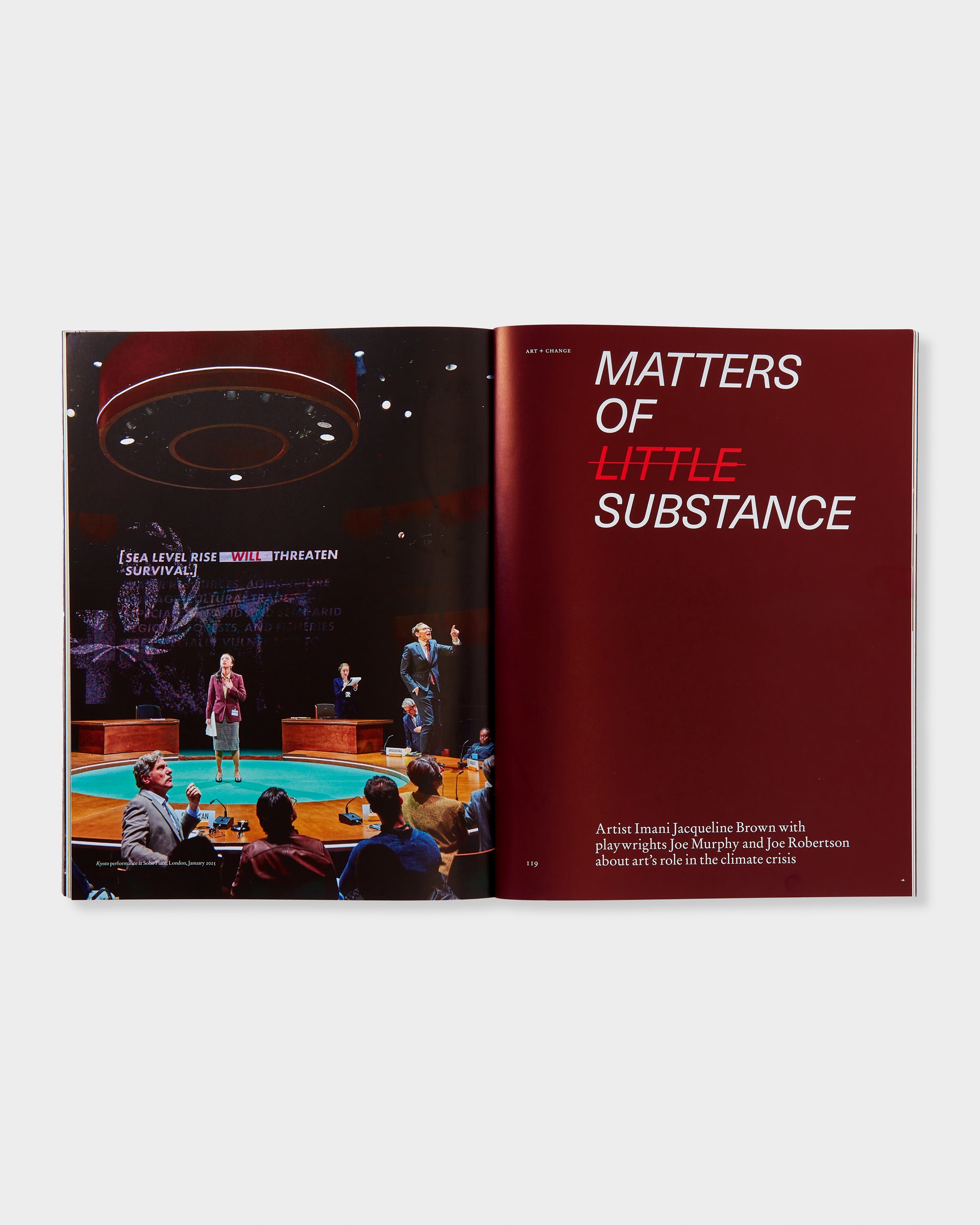
Ursula: Issue 15
Ursula No. 15 explores the intertwined ideas of care, craft, and creative inheritance across art, film, and literature.
The cover story, "Repeat into Eternity," brings together actor and producer Frances McDormand, artist Suzanne Bocanegra and scholar Jerry Grant for a conversation about Shaker design, song and communal care.
Elsewhere in the issue, artist Jeffrey Gibson speaks with writer Ekow Eshun about the influences that shaped his practice; Barbara Chase-Riboud revisits her encounters with Alberto Giacometti in the 1960s; art historian Briony Fer considers the radical playfulness of Sophie Taeuber-Arp’s abstraction; and artist Imani Jacqueline Brown joins playwrights Joe Murphy and Joe Robertson to discuss the role of art in the climate crisis.
The Winter 2025 issue also features a new short story by Ben Okri, fresh contributions from Charlene Prempeh, Monica Youn, and Lucy Sante, and the debut of Camera Lucida—a recurring feature celebrating photographers we love, with this issue highlighting Jack Davison.
Shipping & Returns
Depending on your location, items that you order may be shipped from the US or Europe.
We aim to deliver all orders within the UK / EU / US within 5 working days. Orders to be delivered to other destinations can normally be expected to arrive within 7 – 10 working days.
Shipping charges for all destinations will be calculated at checkout and included on your Order Confirmation.
For more information please review our Shipping & Returns Policy.
Choose options
















From the Editor
“Do all your work as though you had a thousand years to live; and as you would if you knew you must die tomorrow.”—Mother Ann Lee, founder of the Shakers
In “Rock My Religion,” Dan Graham’s classic essay about connections between religious fervor and rock music, Graham observes that “an unresolved conflict between Puritan individualism and the yearning for communalism” lies at the heart of the American experiment.
The Shakers—or, as they called themselves, the Believers—were about as far to the communal side of that schism as it got. A millenarian sect known for ecstatic worship (hence the nickname the “Shaking Quakers”), radical gender equality and unbounded kindness (they took in orphans, abandoned children and the hungry), the Shakers have remained in the public consciousness largely because of the physical objects their spiritualism bequeathed to the wider world.
Making something well, they believed, was in itself an act of prayer. And the sturdy things they made—chairs, tables, brooms, baskets, benches, gloves, cloaks—were simply exquisite, poetic distillations of New England functional austerity that resonated through Modernism and continues to influence contemporary design.
“The peculiar grace of a Shaker chair,” Thomas Merton once wrote, “is due to the fact that it was made by someone capable of believing that an angel might come and sit on it.”
In a sense, however, a thoroughgoing appreciation of Shaker culture has been undercut by these creations, a situation well understood by one 20th-century Shaker eldress, Sister R. Mildred Barker, who once quipped: “I don’t want to be remembered as a chair.”
The unusual cover story of our new issue—a conversation with the actor and producer Frances McDormand; her friend, the artist Suzanne Bocanegra; and Jerry Grant, the director of libraries and collections for the Shaker Museum in Chatham, New York—speaks to the heart of this conundrum.
McDormand and Bocanegra have long been interested in the vision of lifelong care and compassion that defined Shaker communities, and in 2024, they staged “Cradled,” an exhibition in Kinderhook, New York that highlighted the Shakers’ use of adult-size cradles—strikingly beautiful pieces of furniture—to provide comfort and nurturing to the elderly. (McDormand’s Shaker fandom was developed in part through her involvement in Early Shaker Spirituals, a 2015 production of the experimental New York theater company the Wooster Group that featured hymns recorded by Sister Mildred.)
In preparation for a larger staging of the exhibition at Make Hauser & Wirth in Downtown Los Angeles in November, McDormand spoke about her deepening appreciation of the radicality of Shaker charity, especially in recent years, amid a rising tide of intolerance and self-serving politics in the United States.
“American communities used to be more generous,” she said. “I’ve always loved stories about the signs migrants would use, marking places along the way: ‘This is the house where they’ll give you bread.’ ‘Here’s the doctor who will help without payment.’ It wasn’t that long ago, really.”
Bocanegra added: “I once did a piece about honor, which made me think about the word itself. Some of the philosophers I read said honor is often used to set one group above another, and it should be replaced with dignity. Respect and dignity for everyone feels so noticeably lacking right now.”
For the editor of an art magazine, it’s gratifying, especially right now, to publish pages in which ethics and aesthetics are so deeply and meaningfully entwined, as they were in Shaker life. (And my thanks go out to my colleague Russell Salmon for shepherding this cover story with Shaker-like care.)
The relationship between morality and beauty is slippery. But I’ve always been on the side of Elaine Scarry, the literary scholar, who said in her 1999 book On Beauty and Being Just: “At the moment we see something beautiful, we undergo a radical decentering.” Beautiful things “lift us (as though by the air currents of someone else’s sweeping), letting the ground rotate beneath us several inches, so that when we land, we find we are standing in a different relation to the world than we were a moment before.”
— Randy Kennedy
Preview
Featured in This Issue
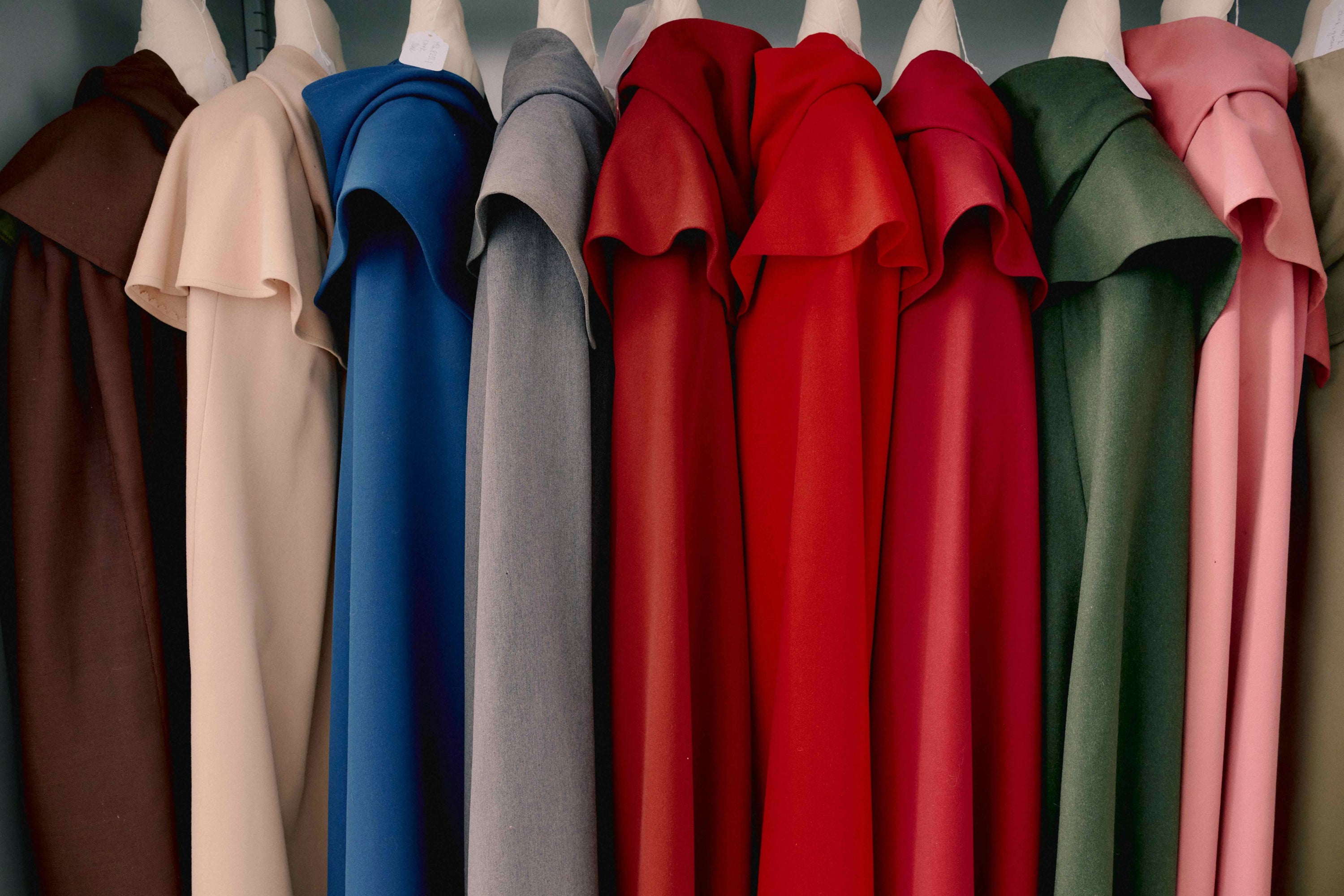
Repeat Into Eternity
Suzanne Bocanegra and Frances McDormand on Shaker design, song and communal care.

The Art That Made Me
Ekow Eshun talks with Jeffrey Gibson about the artists, artworks and cultural figures that have shaped his work.
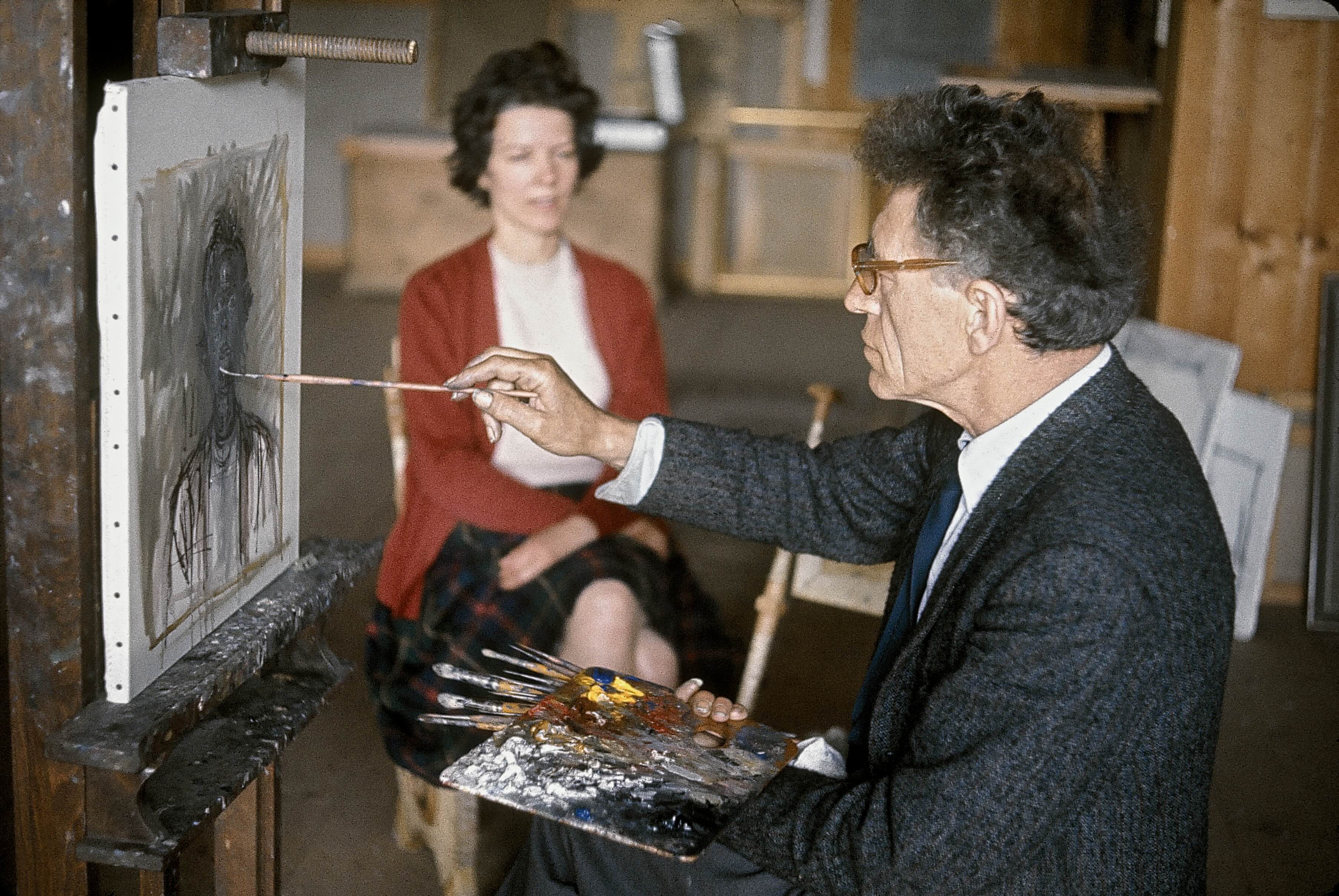
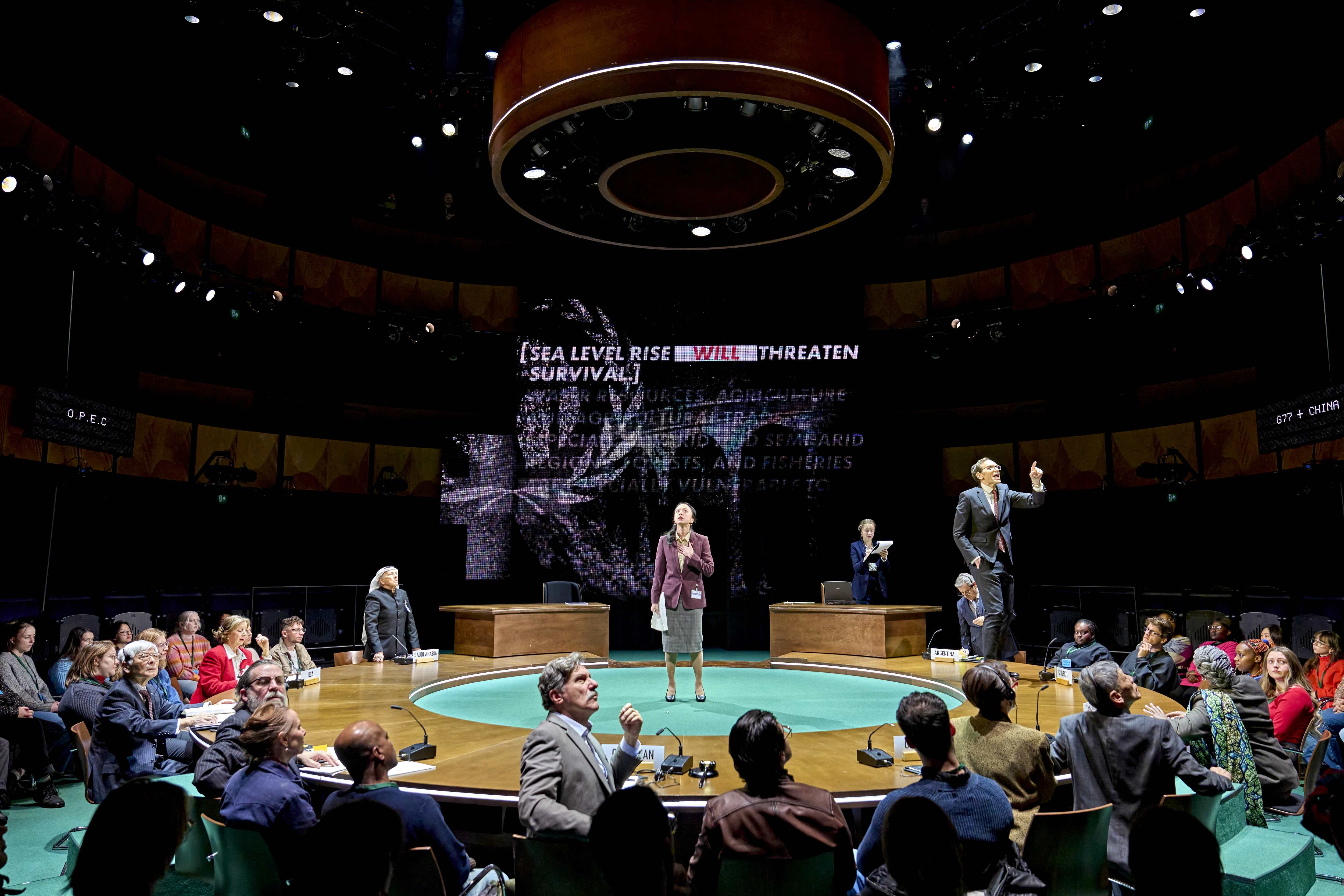
Matters of Substance
Artist Imani Jacqueline Brown with playwrights Joe Murphy and Joe Robertston about art’s role in the climate crisis.
Discover more

